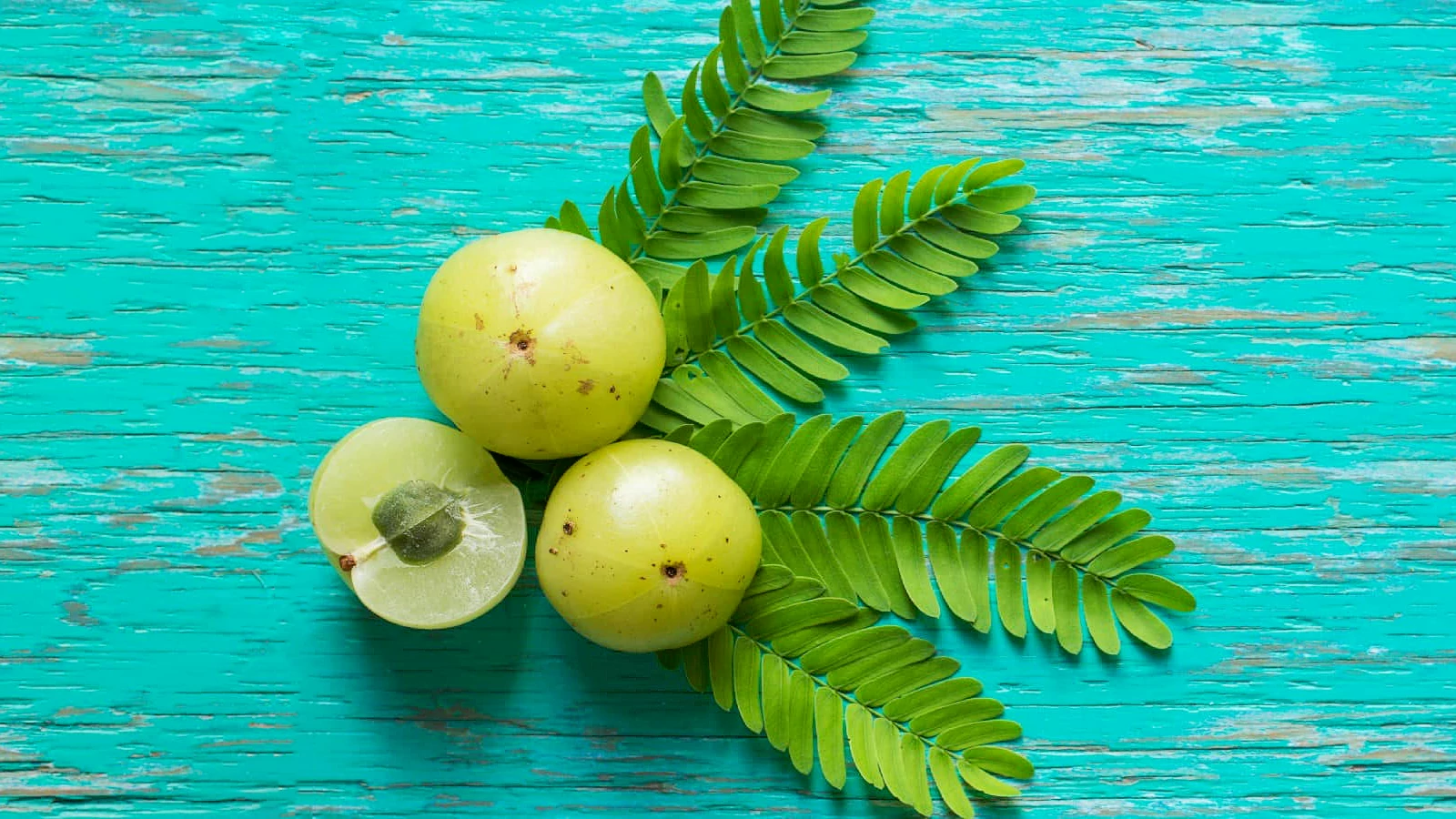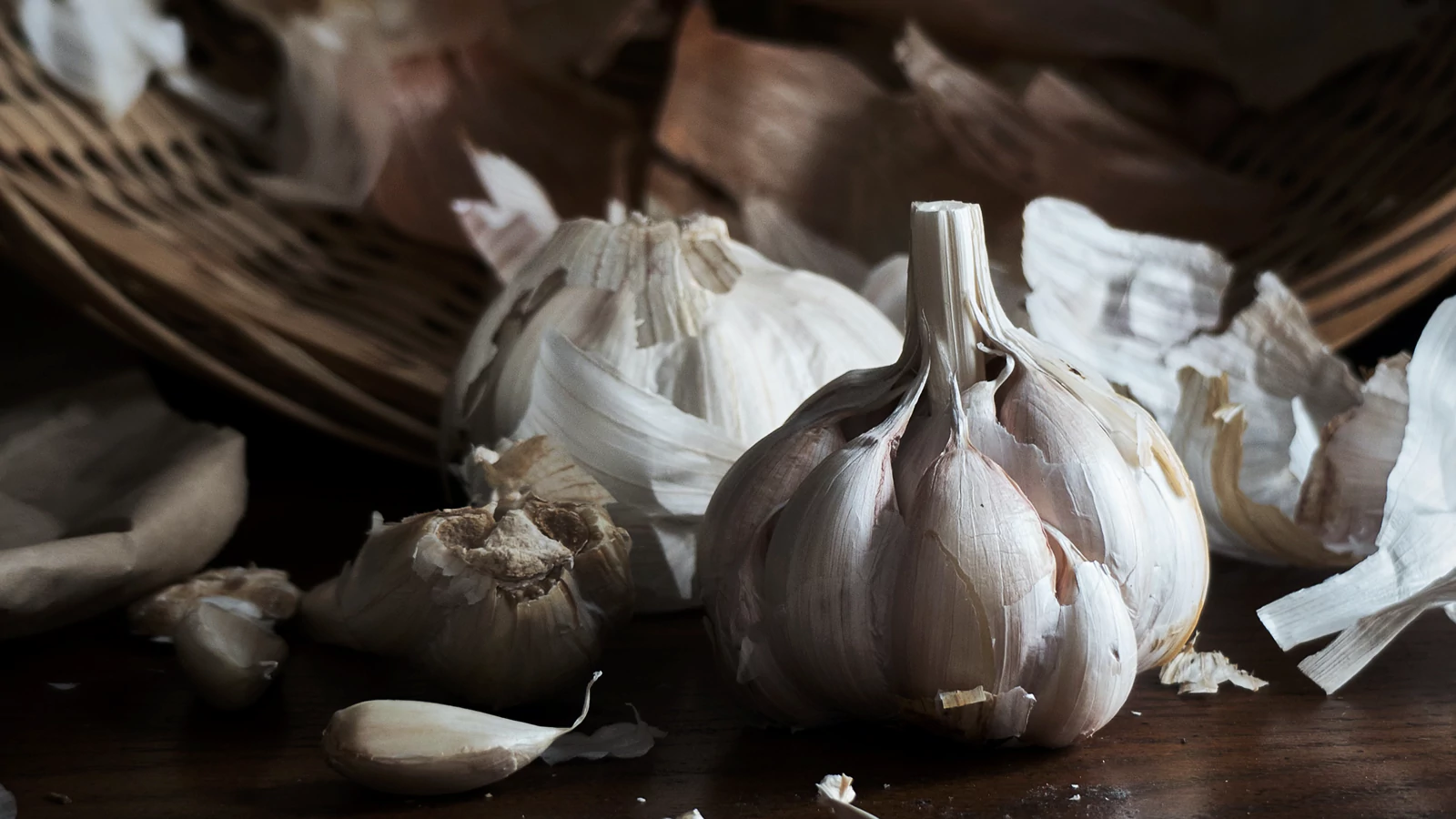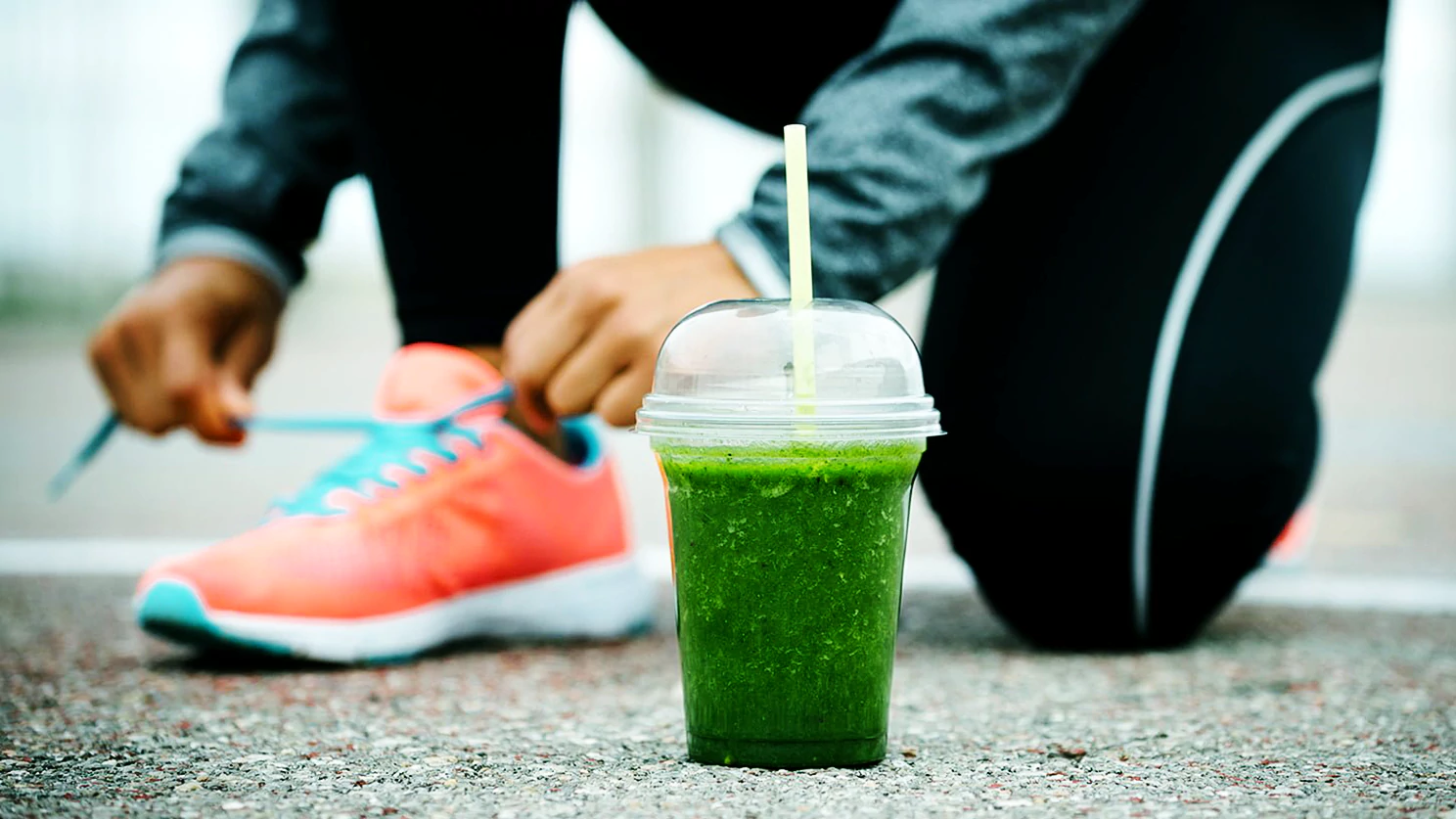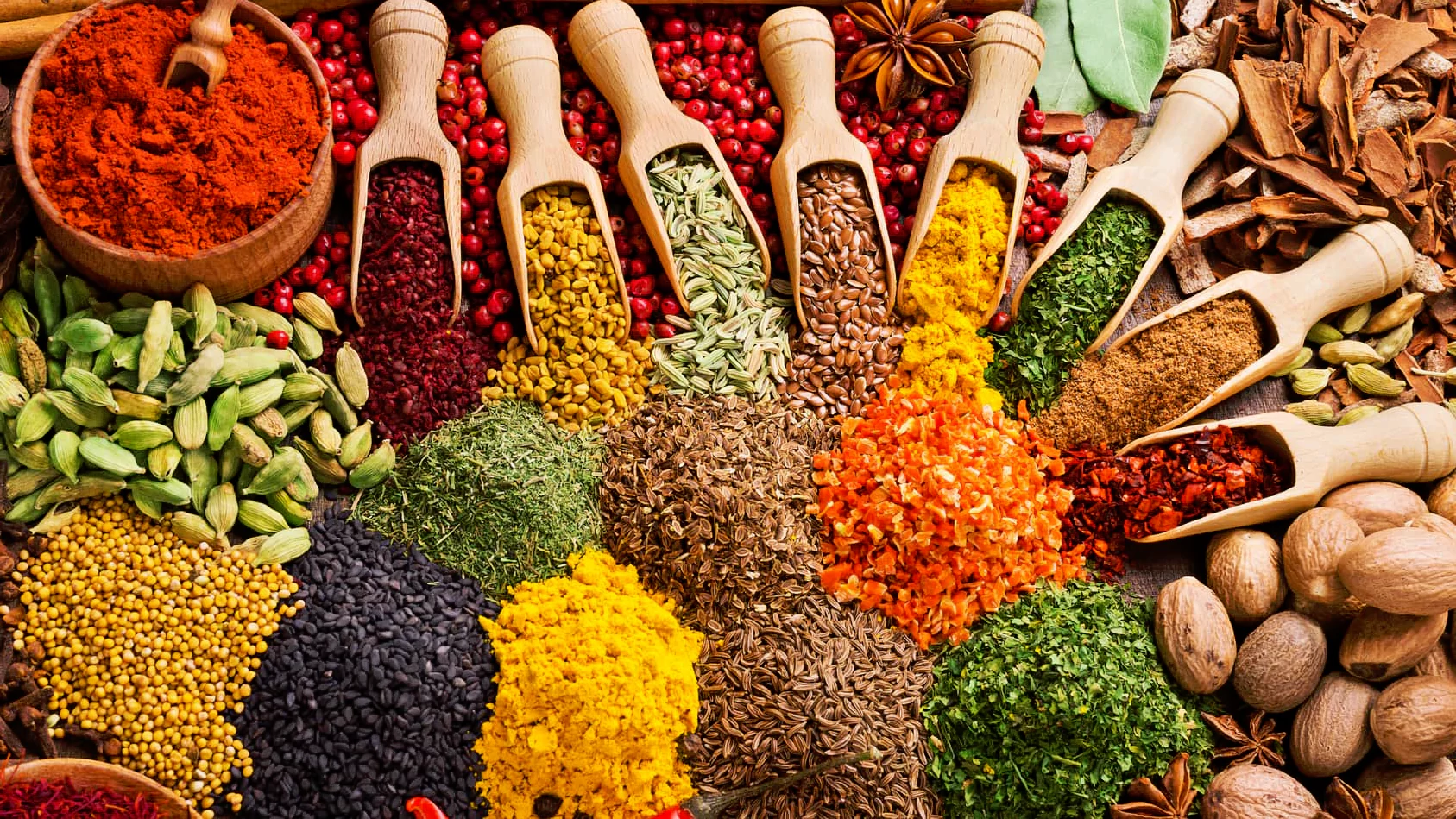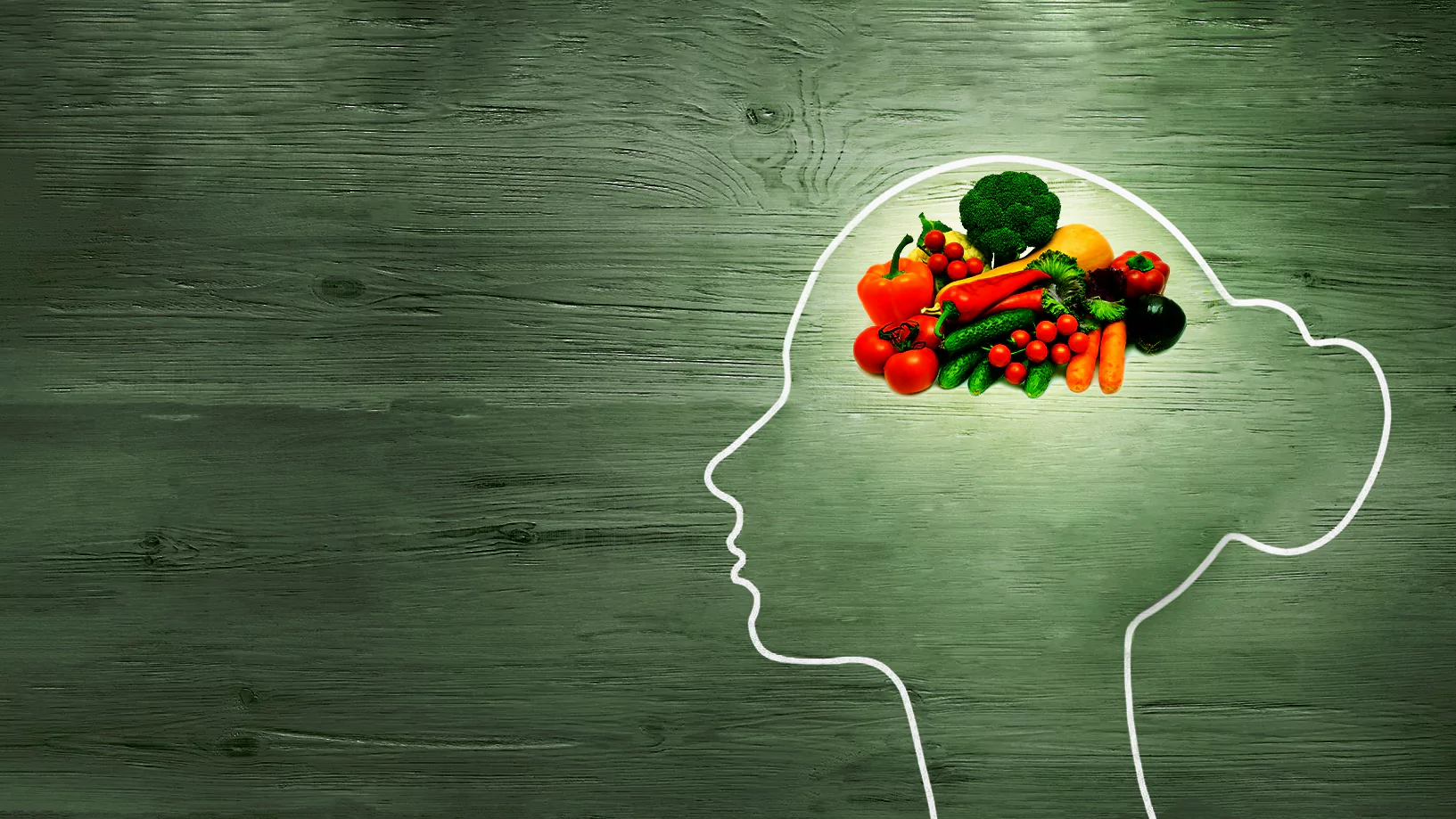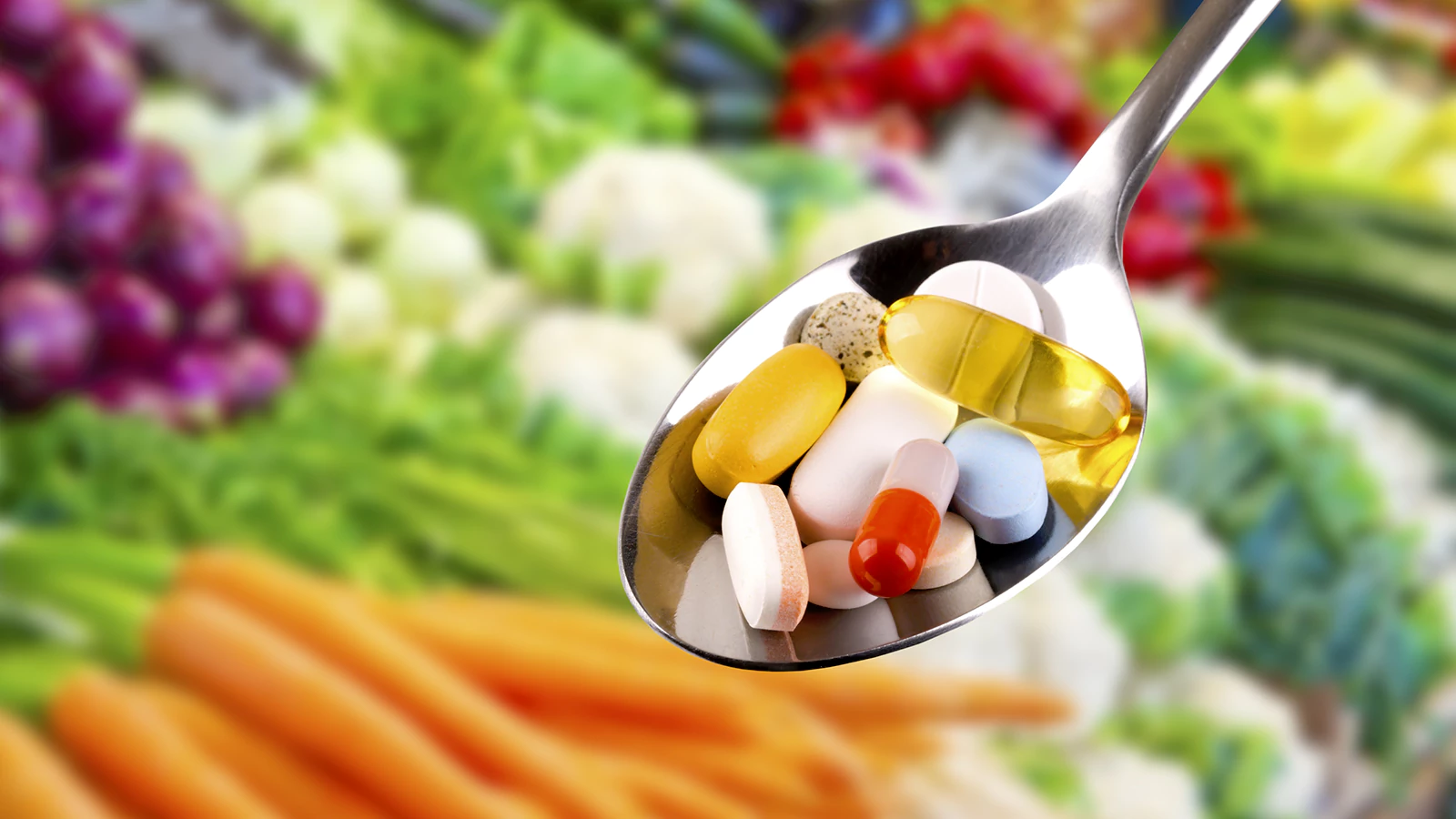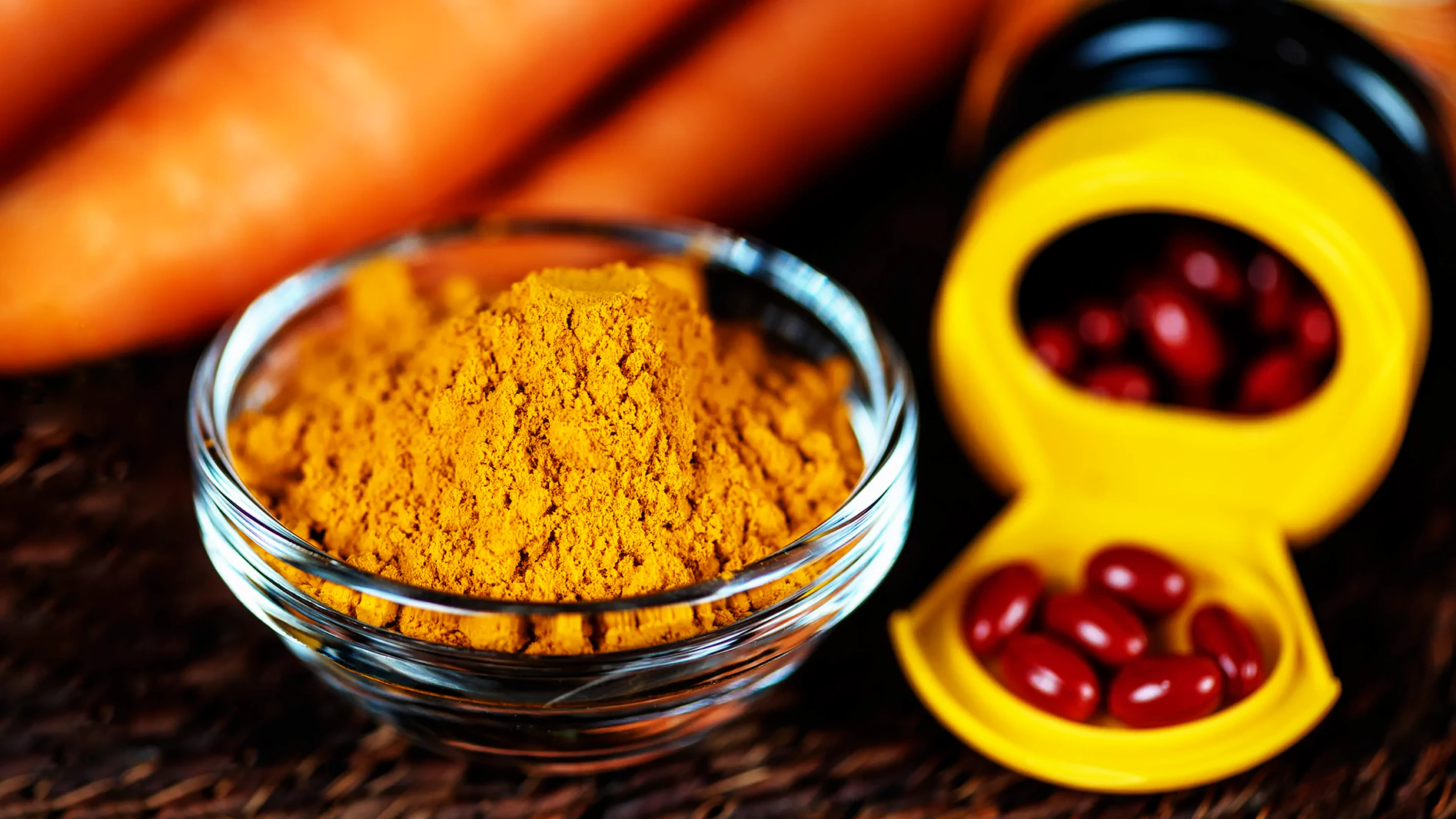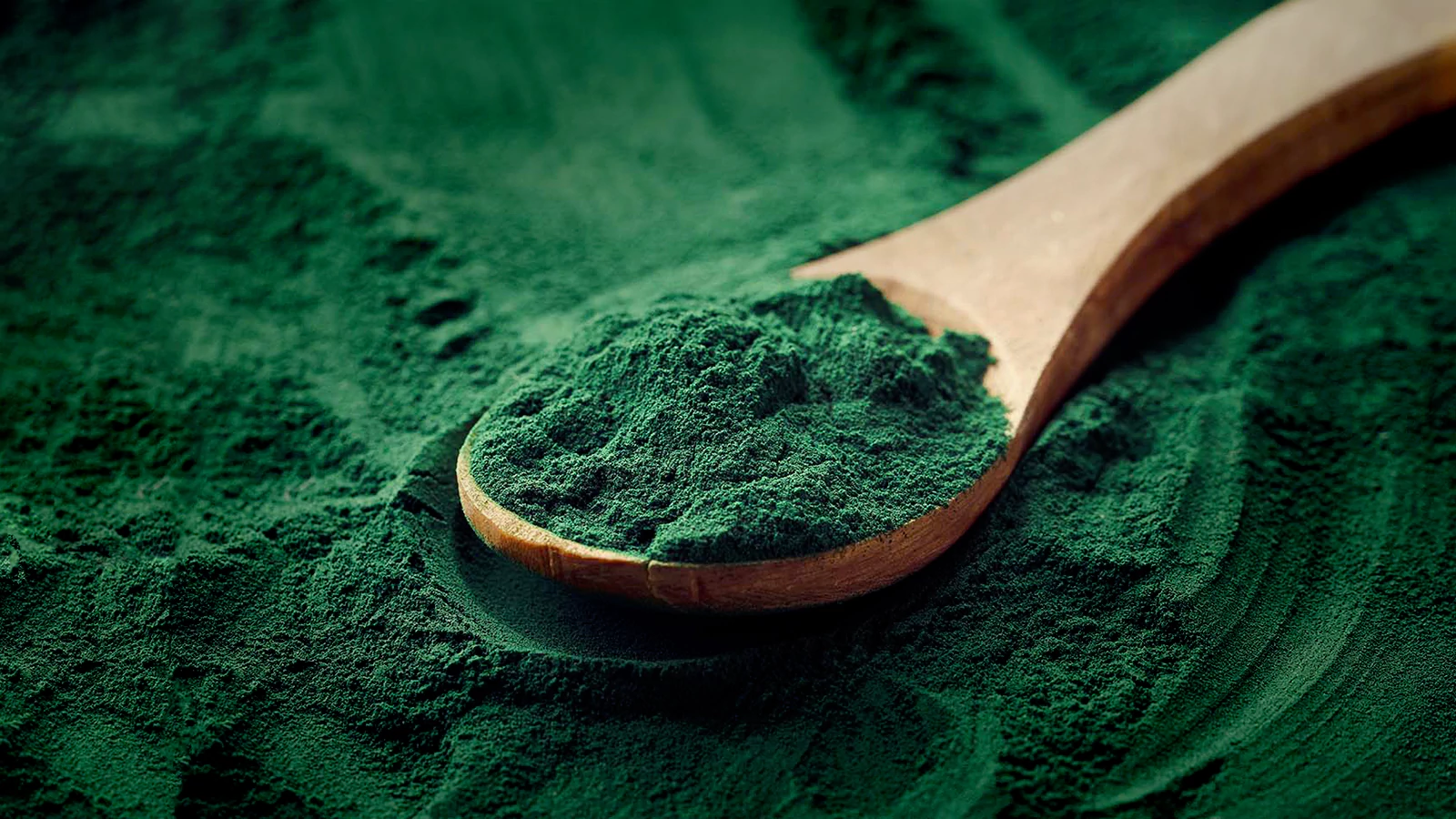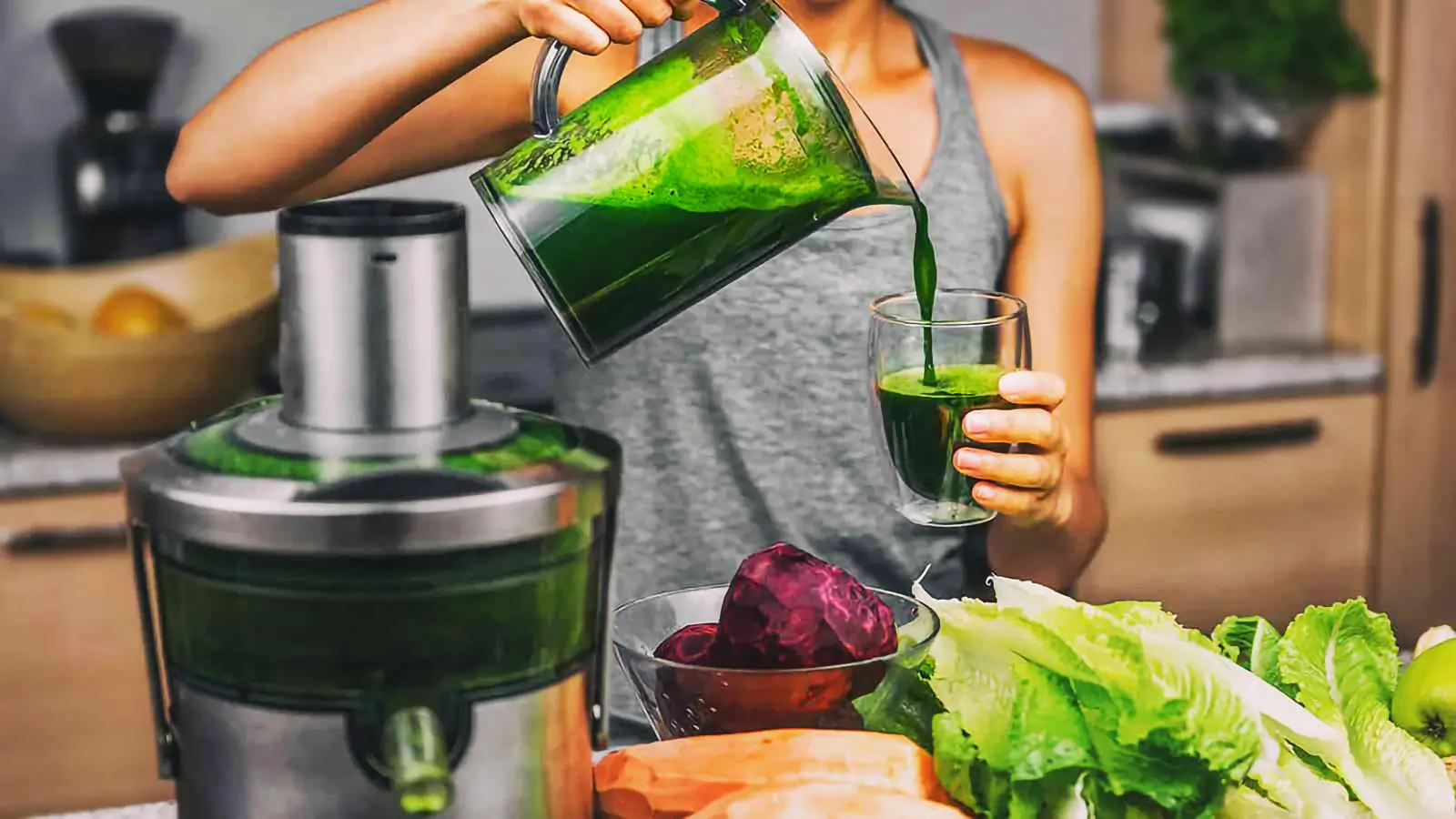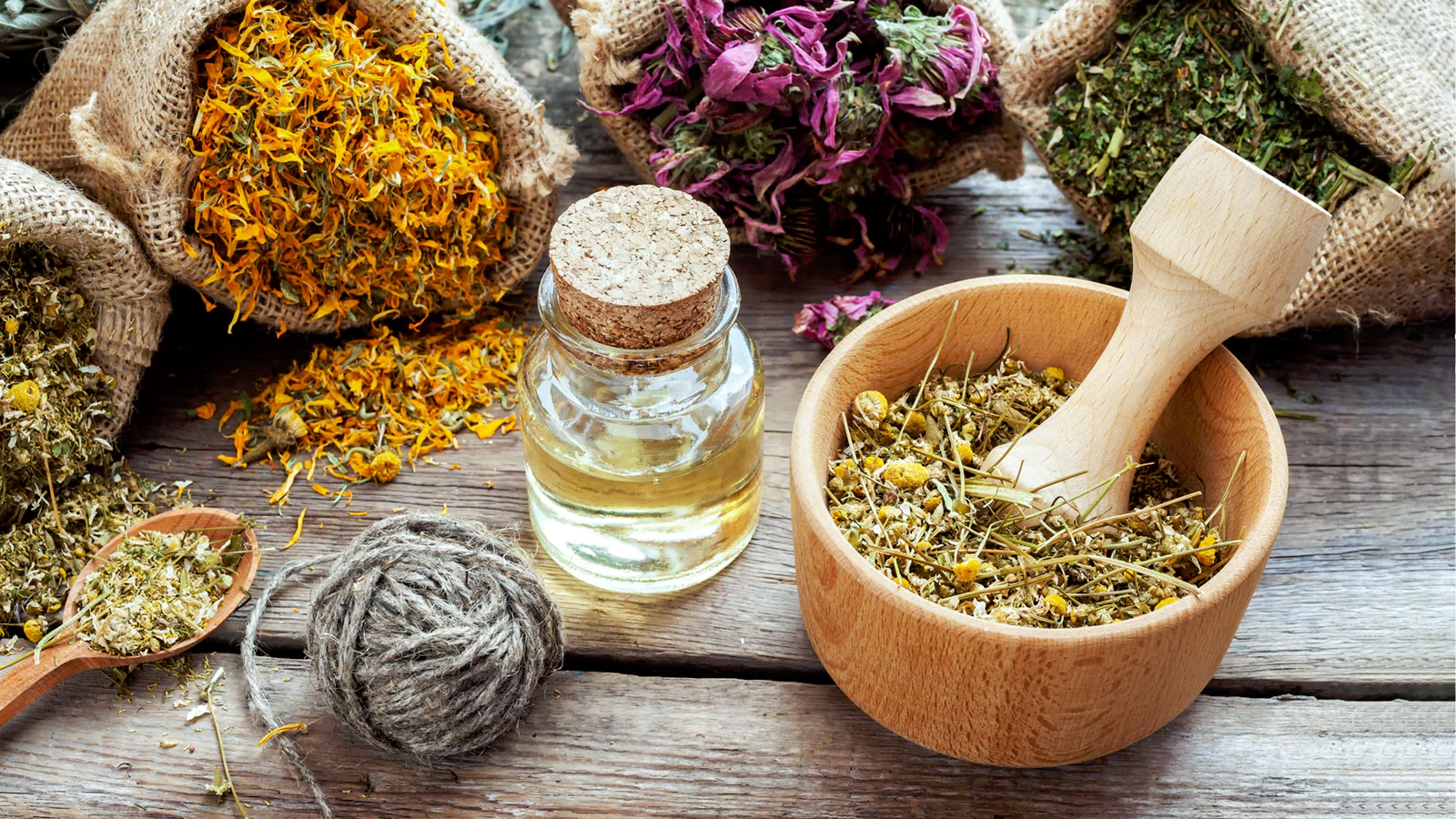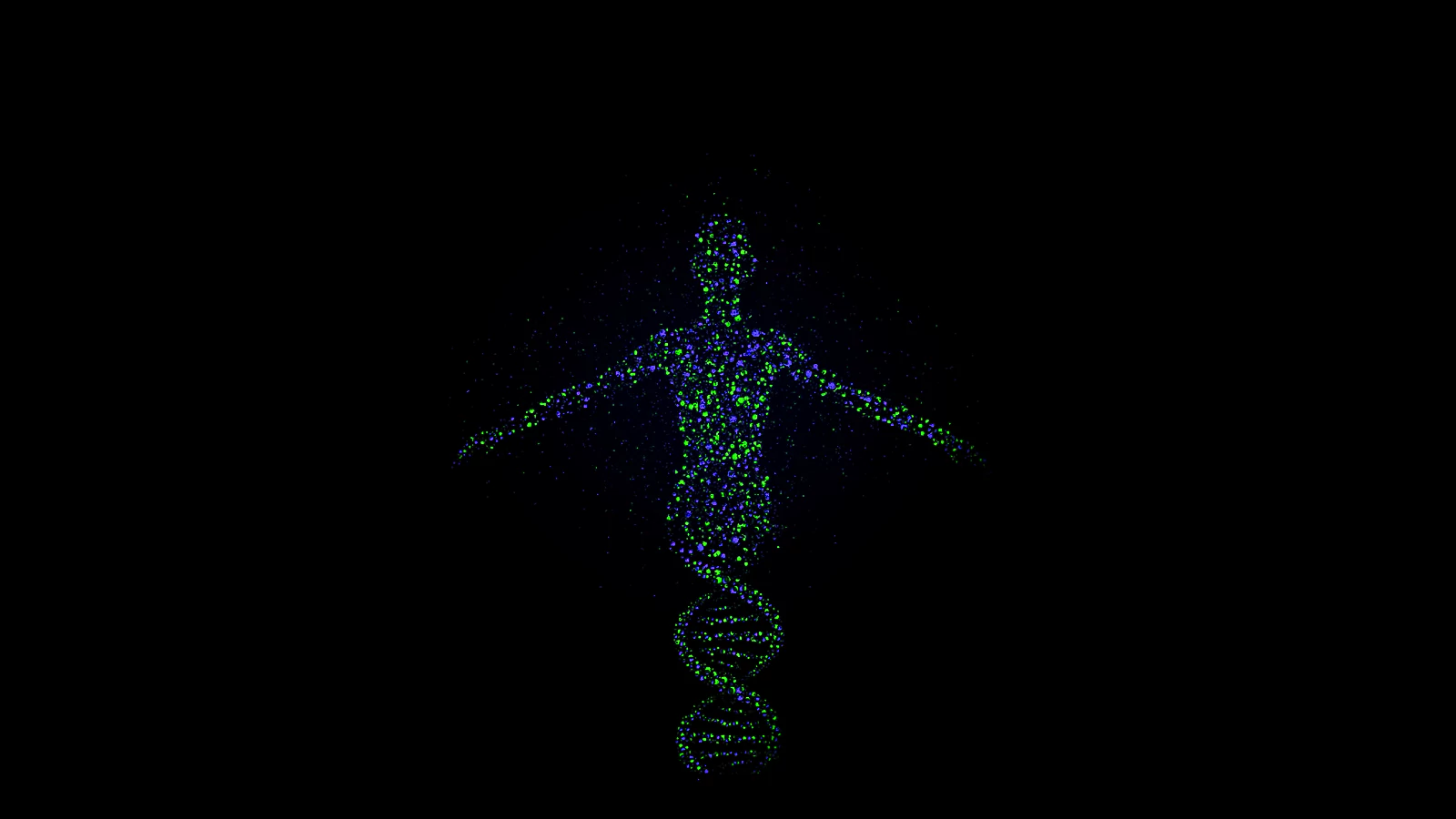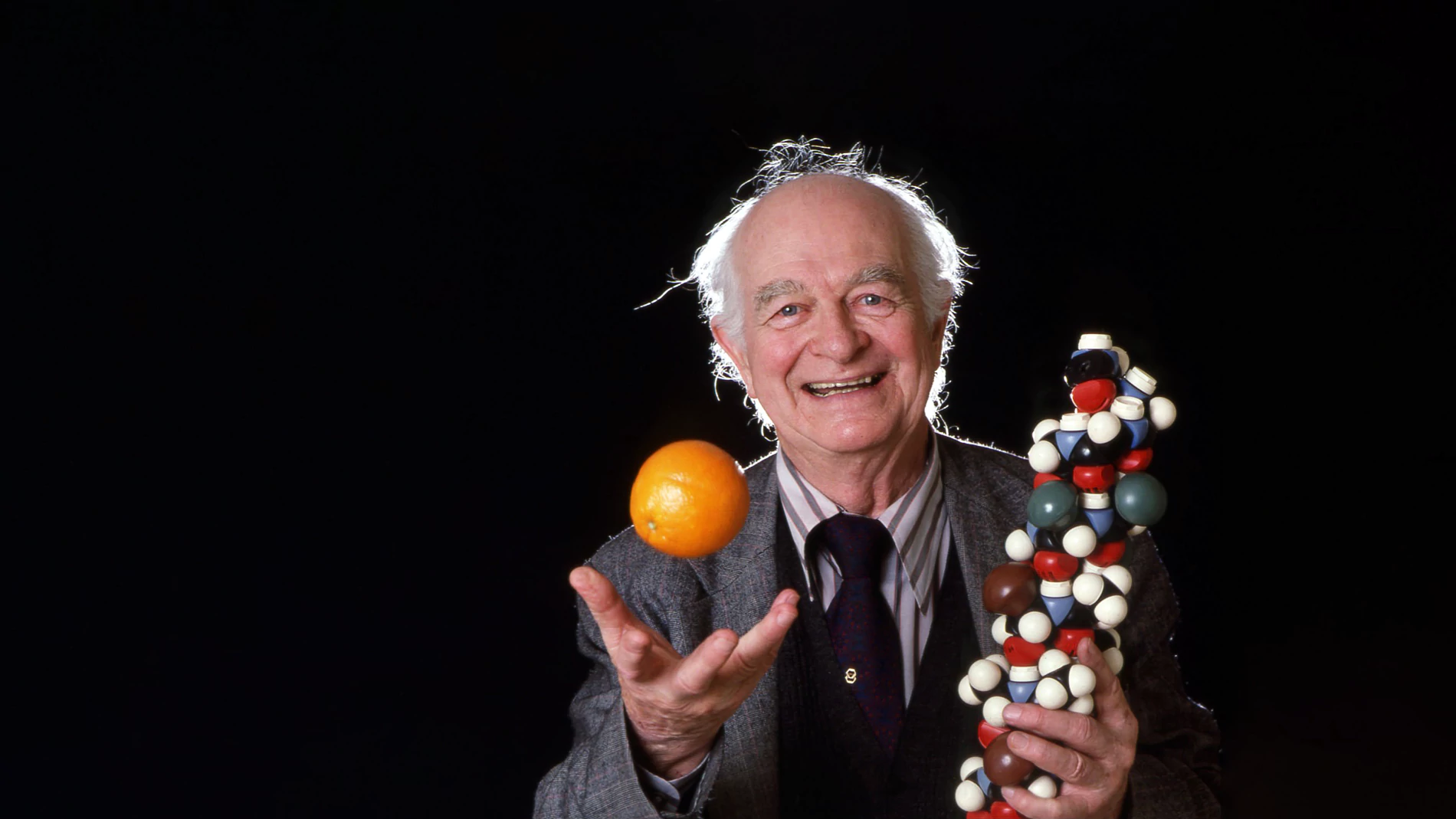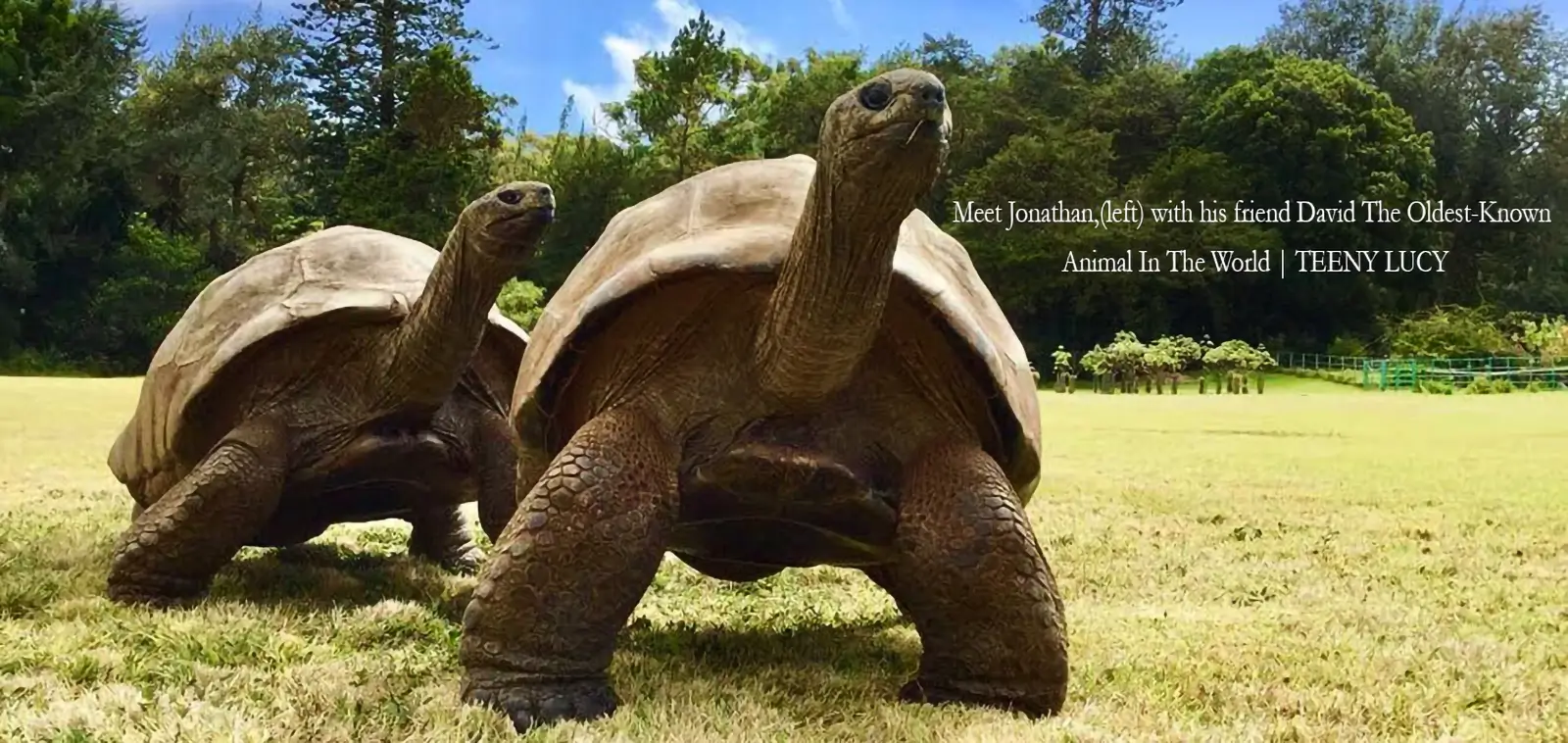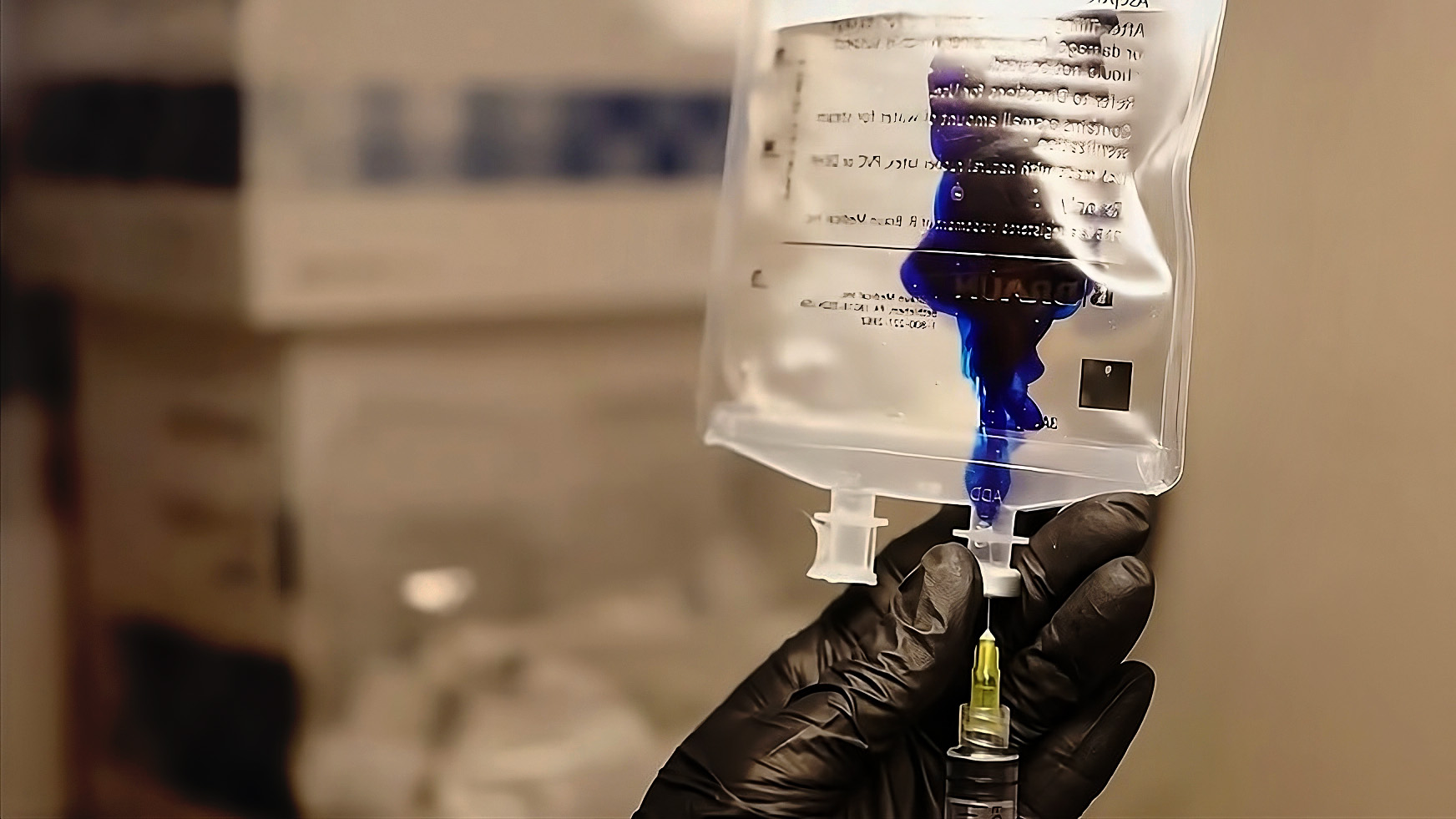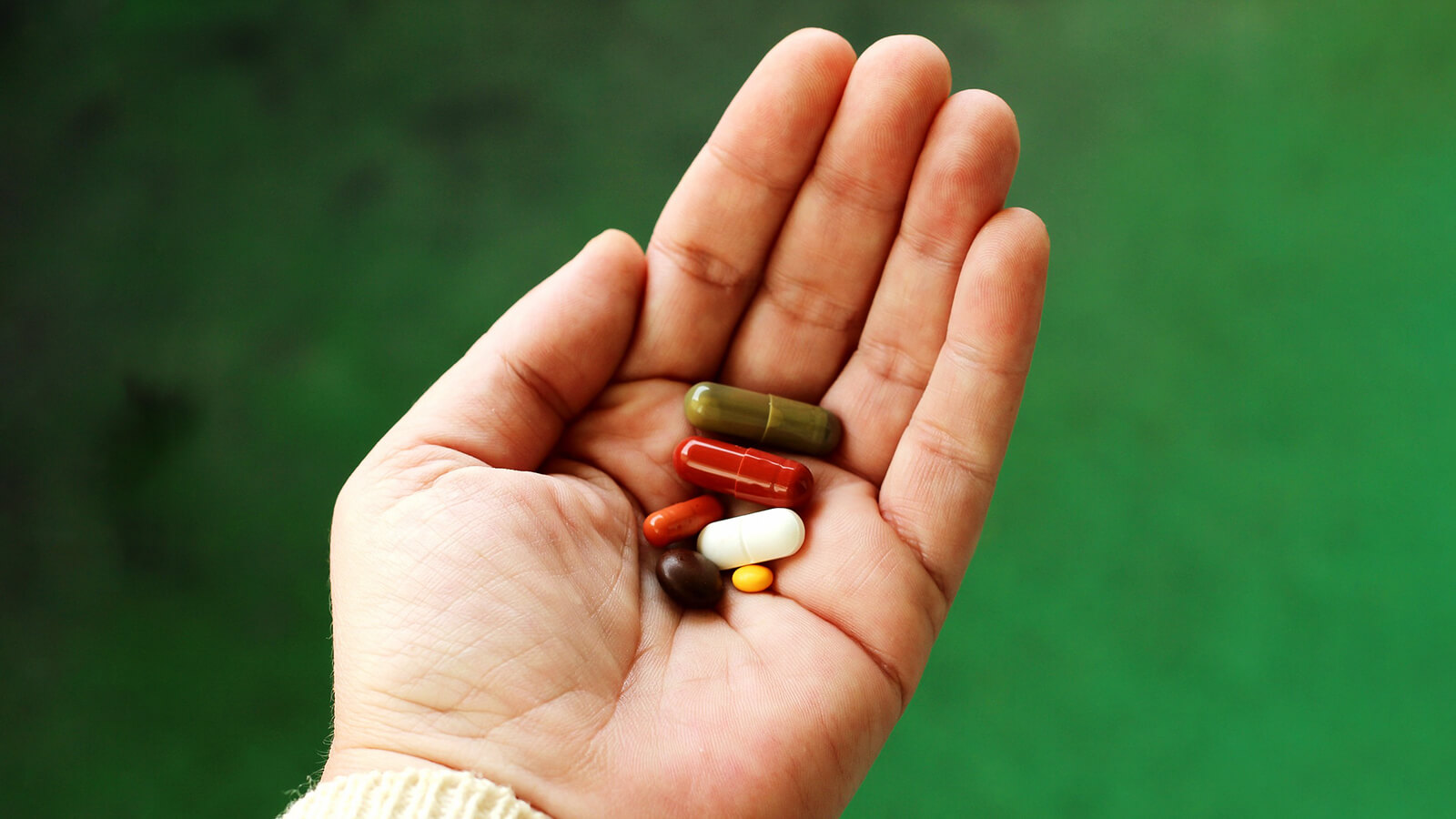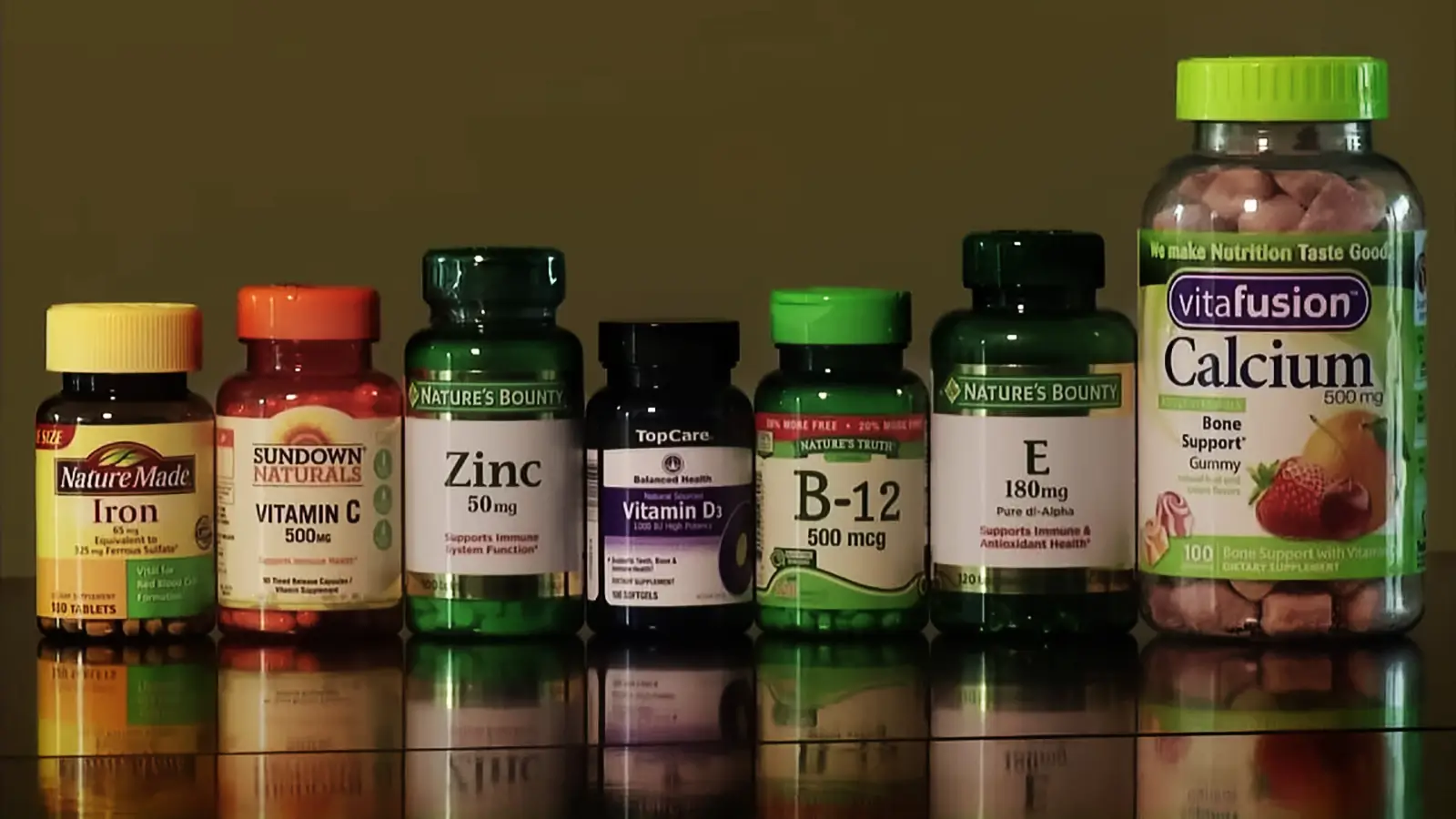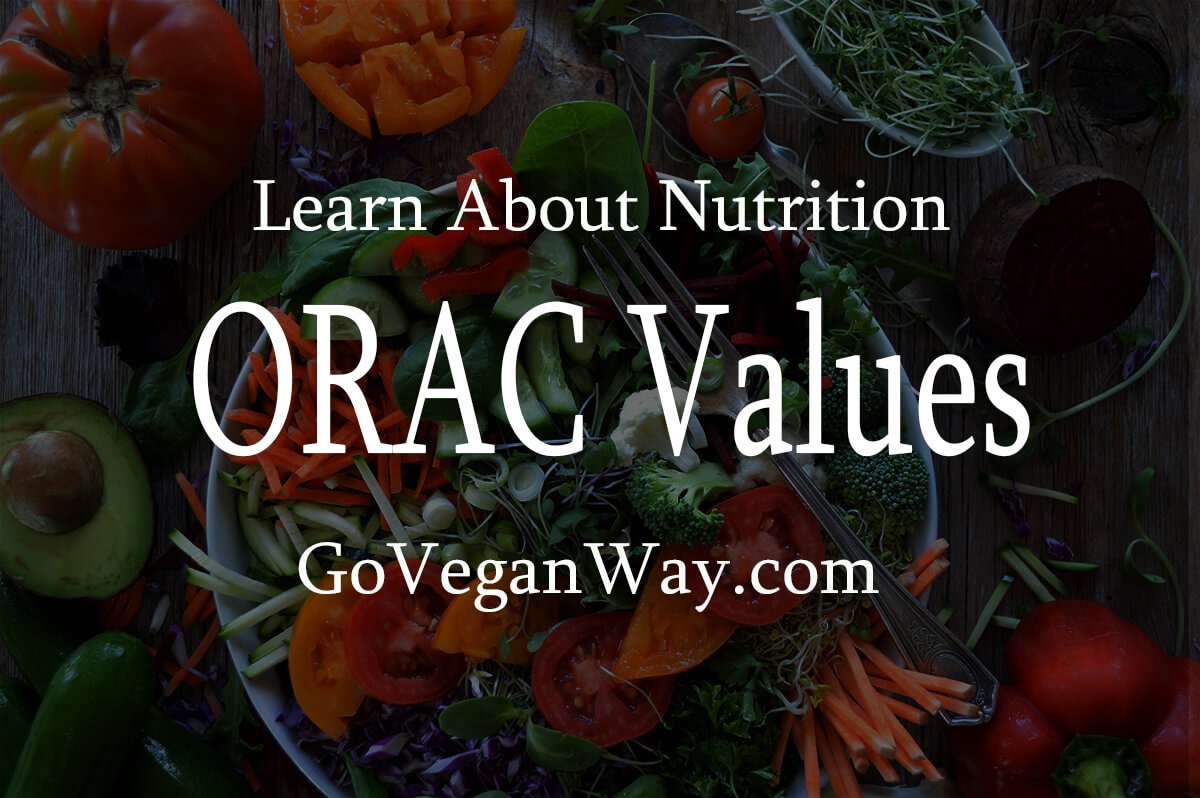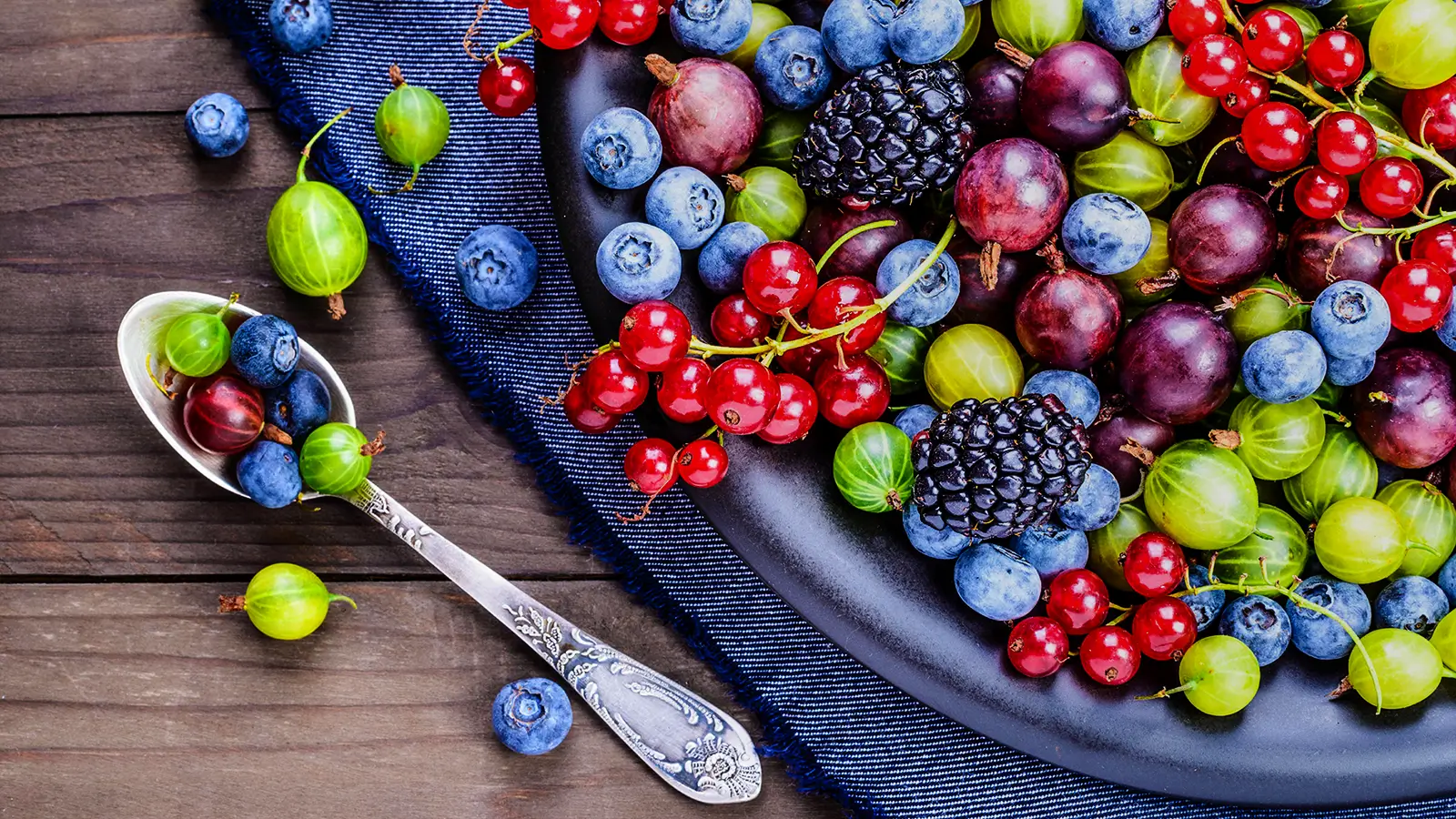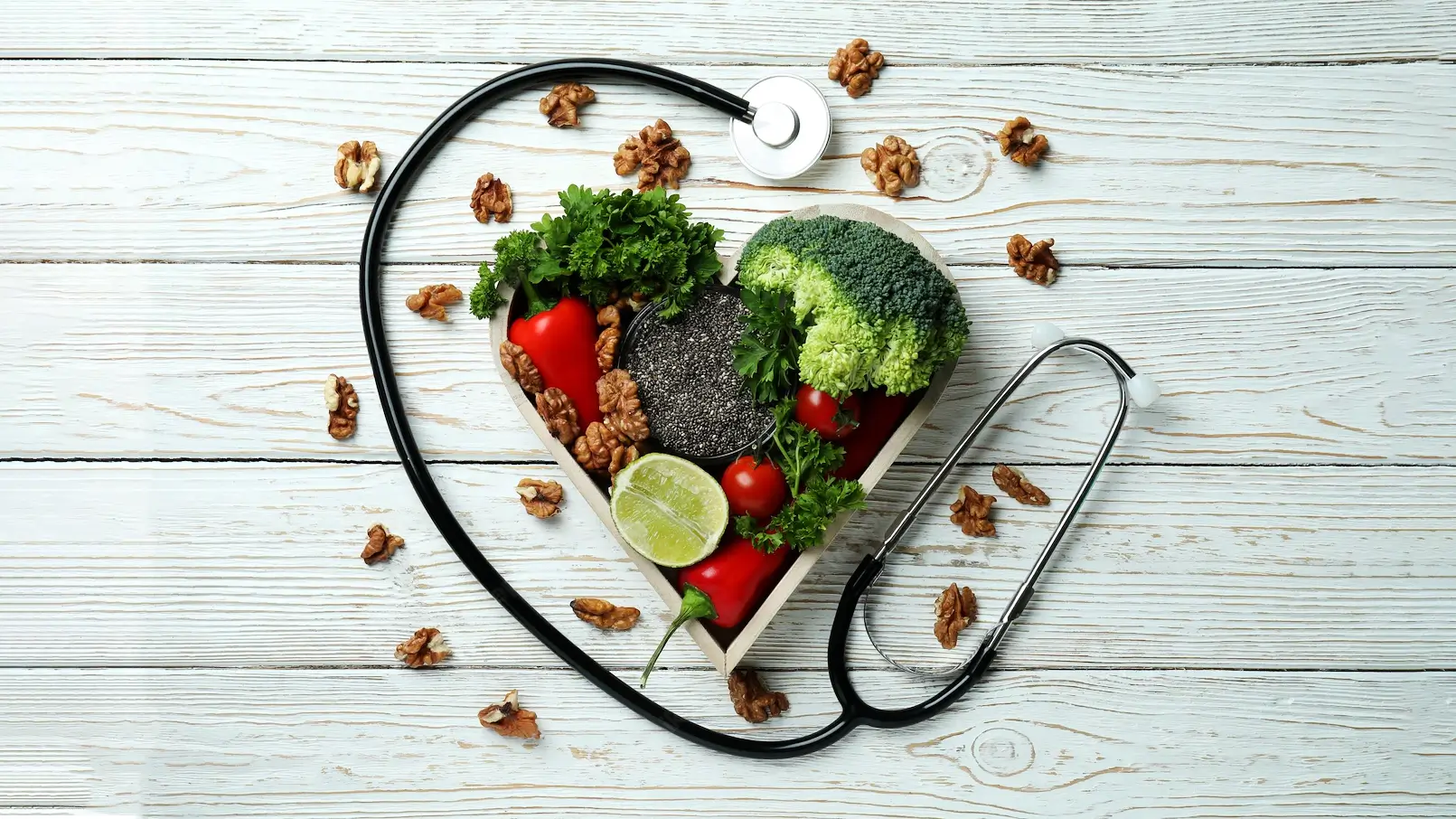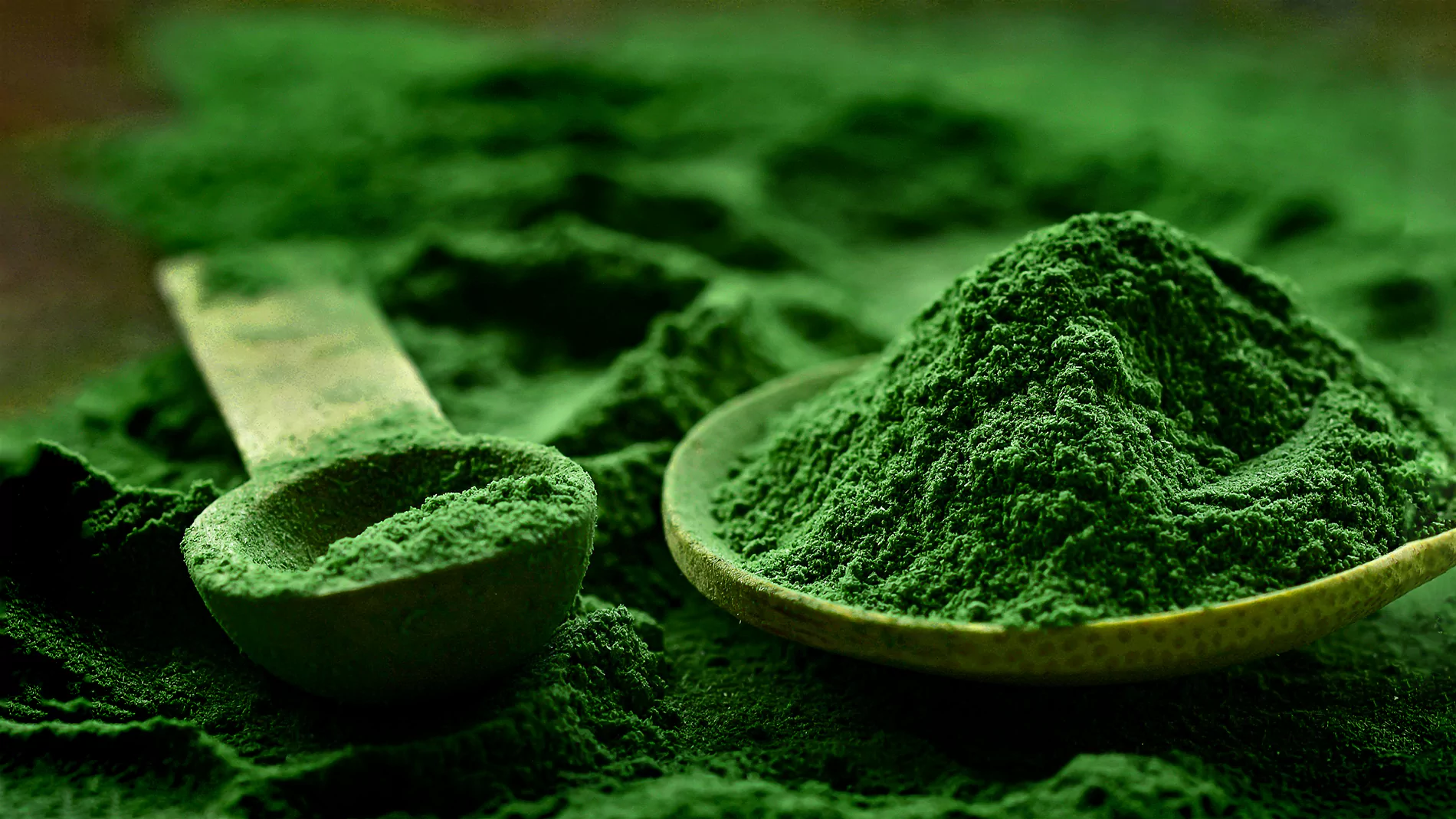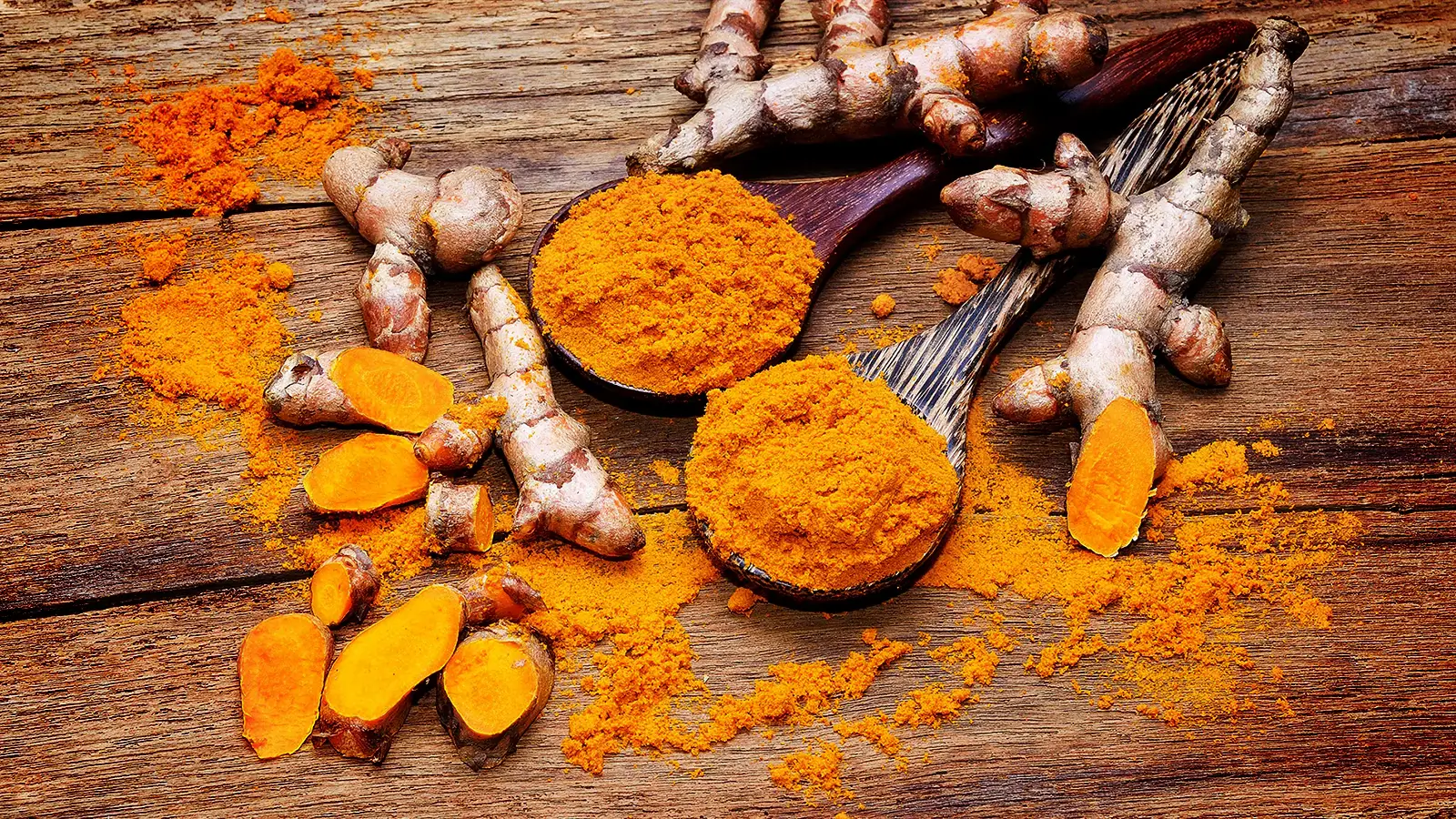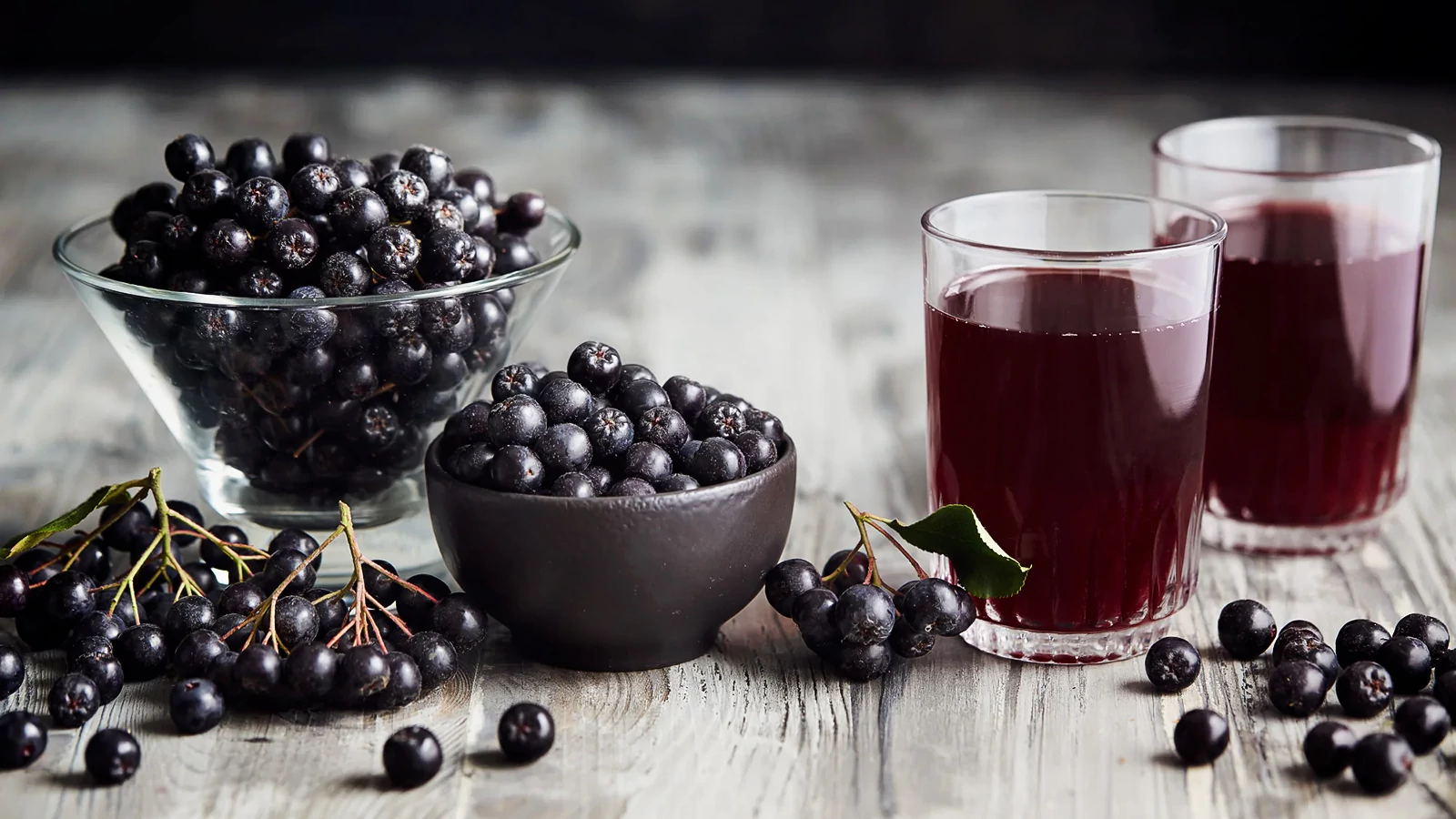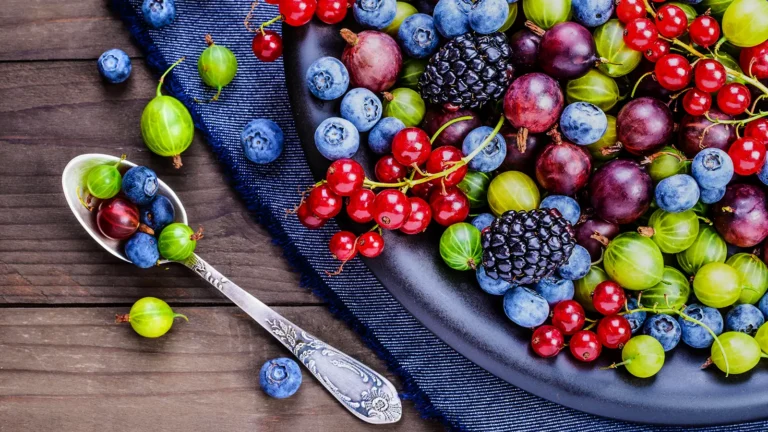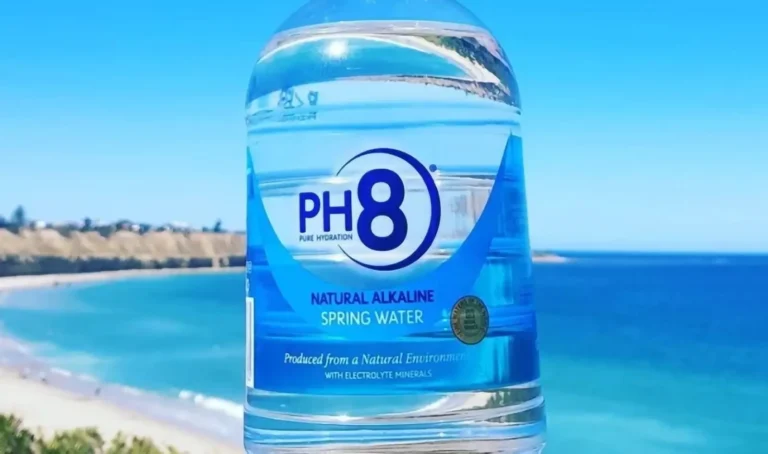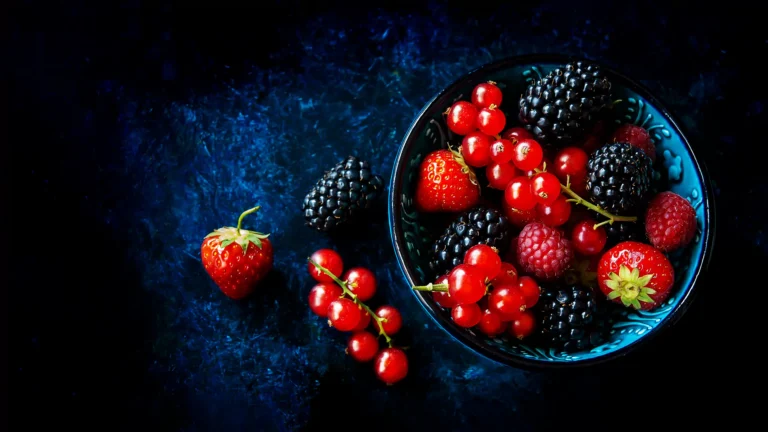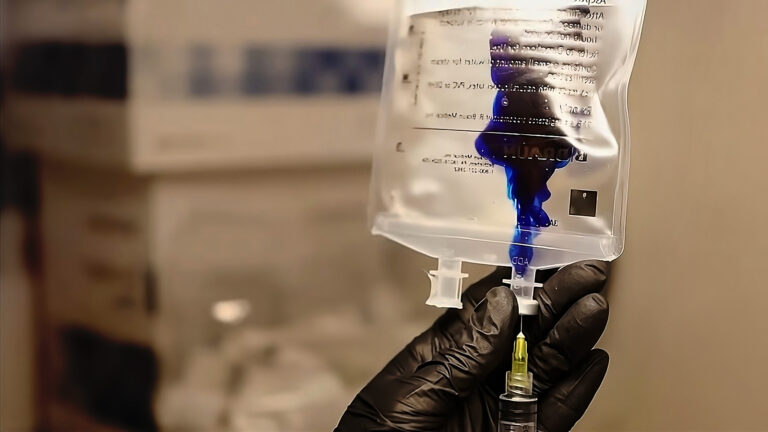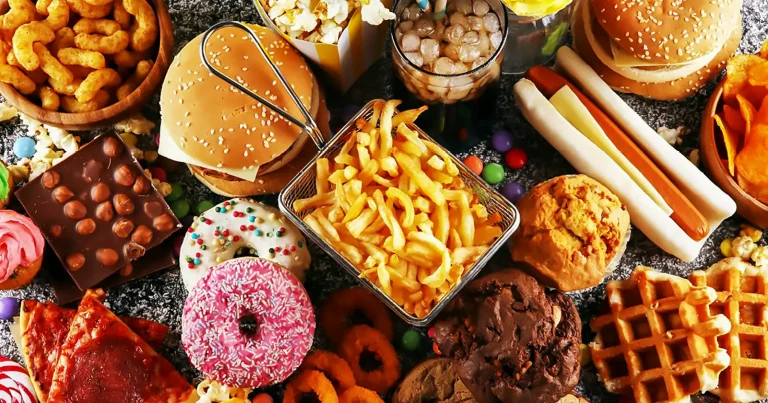Antioxidants: Understanding the Basics
There are no phytochemicals or antioxidants in animal products. On average, plant foods contain more than 60 times as many antioxidants as animal-based foods.
Milos Pokimica
Written By: Milos Pokimica
Medically Reviewed by: Dr. Xiùying Wáng, M.D.
Updated December 21, 2025Key Takeaways:
– There are no phytochemicals and adequate amounts of antioxidants in animal products.
– Besides vitamins, next in the line of the most important phytochemicals for us are natural pigments. These pigments are created by the plants as a defensive mechanism from free oxygen damage (antioxidants) or as a defense from UV radiation.
– Antioxidants are important because they prevent inflammation, damage to the DNA and also influence the rate of aging.
– There is no wonder cure or substitute for a bad diet, there are only more potent supplemental antioxidant food sources like amla, turmeric, cacao, hibiscus, astaxanthin, or berries…
– Never take supplemental antioxidants that will turn into pro-oxidant inside the body, or that need enzymatic pathways to be removed from the body, they might overrun the body’s natural defense mechanism, do your research before taking them.
Antioxidants
Phytochemicals (all the chemicals that plants produce) are essential for life. The most important chemicals are defined as vitamins (vita means life) and are essential for our organism. We have been evolving for 50 million years eating whole food plant-based diet and in nature, food is a package deal. To get to the calories in the form of macronutrients such as sugar and fat we had to consume all other phytochemicals in the plant as well. In time our bodies adapted. Some of those phytochemicals became so important that whiteout consuming them we will die in the same manner as we will if we did not eat any calories. There are only two vitamins that plants do not produce vitamin B12 and vitamin D.
Besides vitamins, next in the line of the most important phytochemicals for us are natural pigments.
These pigments are created by the plants as a defensive mechanism from free oxygen damage (antioxidants) or as a defense from UV radiation.
In the history of modern nutritional science, understanding antioxidants is one of the major topics. In many cases, food-derived antioxidants have received much attention because of their ability to scavenge free radicals, protect against radiation, protect from DNA damage, chelate environmental toxins, inhibit lipid peroxidation, chelate transition metal ions, as well as their additional nutritional value. In traditional medicine, they are even used as an antidote to snake venom.
The most important natural pigment for us is an orange pigment from carrots and other vegetables known as beta carotene. Our body will convert beta-carotene into vitamin A. We are actually one of the species on this planet that is dependent on a plant-based diet and phytochemicals and we will die if we don’t eat them. If we don’t eat meat, we will have vitamin B12 deficiency in the modern age because we have started to wash our hands and use sanitation, but if we don’t eat plants we will die from scurvy. Most other animals and all omnivores and carnivores make their own vitamin C. If we look at the fossil record, humans in the stone age with some meat consumption that was present still had around 130 grams of fiber per day and around 10 times more vitamin C.
It is also logical to conclude that if we depend on antioxidant vitamins, two of them are vitamins for us, vitamin C and vitamin E, we also depend to some extent on all other antioxidants as well.
They might not be vitamins per se but still, we don’t have an adequate internal defense mechanism against free radical damage. We need to consume them as well. We did for our whole evolution. All of the other antioxidants and pigments that are not vitamins are still antioxidants and we still need them to a lesser extent.
Without oxygen, there is no life. It is used by mitochondria, through the electron-transport chain to oxidase some specific molecules to create energy in the form of ATP (adenosine triphosphate). Mitochondria was a separate organism in times when there were no multicellular organisms on this planet. Just one more bacteria.
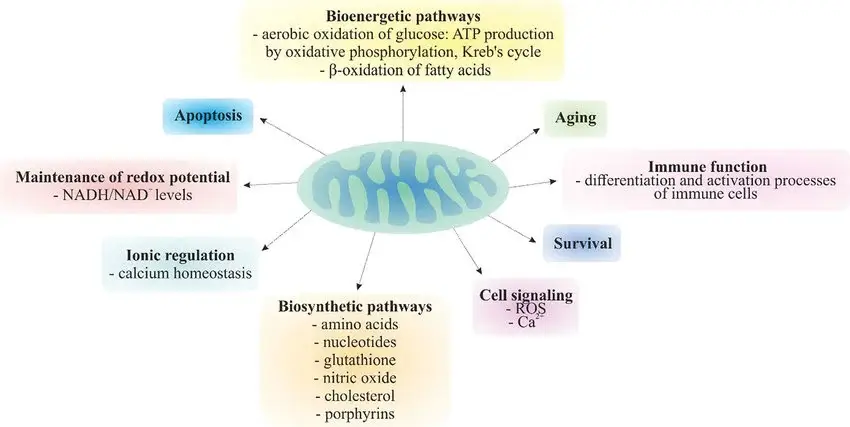
Oxidative stress
The way multicellular organisms developed from a single cellular organism is by symbiosis with mitochondria. It has separate DNA from our own that we inherit from our mothers. We give them nutrients, mitochondria give us energy. During this process, oxygen is reduced to water, producing several oxygen-derived free radicals or reactive oxygen species (ROS) which play an important role in various diseases.
Oxidative stress happens when an oxygen molecule splits into single atoms with unpaired electrons. These aggressive molecules are called free radicals. They are so aggressive that they will attack the nearest stable molecule trying to steal its electron particle. When the attacked particle is left with no electron, it will become the free radical itself. The process is going to create a chain reaction. Once the process is started, the final result is the disruption of a living cell.
Free radicals are created as a part of normal metabolism.
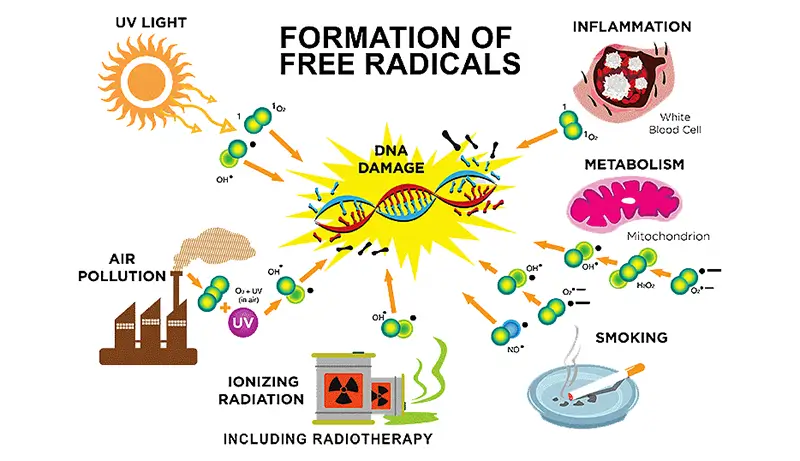
Four different mechanisms produce endogenous (your body creates them) free radicals. The production of free radicals cannot be entirely stopped. It is surprisingly amusing to me that oxygen, an element indispensable for life is also responsible for our death.
It is not plausible to directly measure the number of free radicals in the body. The more fuel we burn, the faster we burn out.
Normally, oxygen free-radicals are neutralized by natural antioxidants such as vitamin E, or enzymes such as superoxide dismutase. However, ROS becomes a problem when either a decrease in their removal or their overproduction occurs, resulting in oxidative stress.
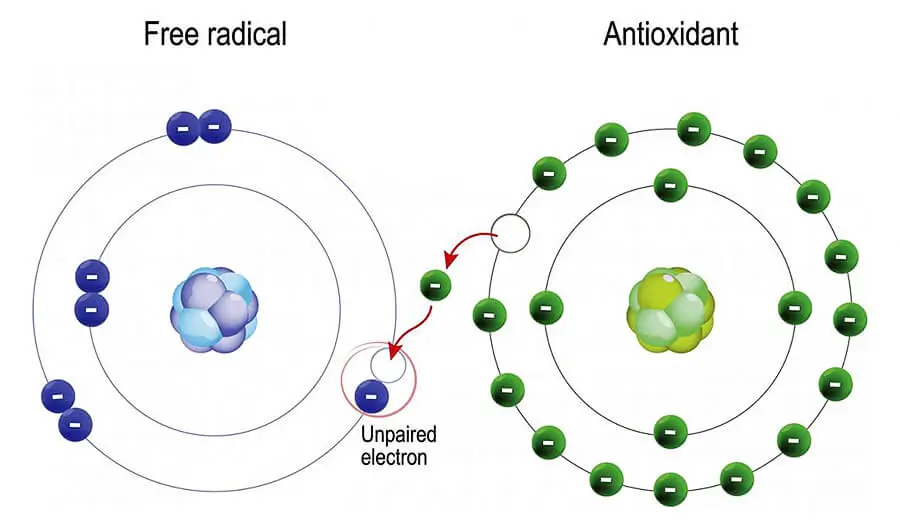
This stress, and the resultant damage, have been implicated in many diseases.
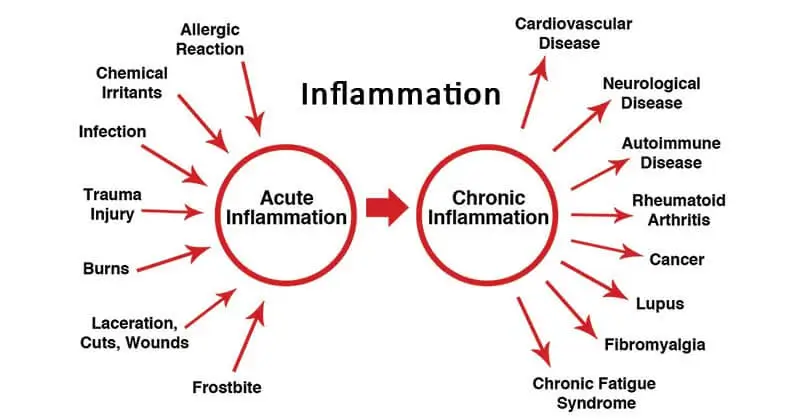
We have a mechanism for our own defense against inflammation and free radical damage but because we have been eating an enormous amount of plant antioxidants in our evolution, we must conclude that we still depend on plant antioxidants to defend ourselves from oxidation and DNA damage. If we depend on taking vitamin C, we also depend on taking other antioxidants as well. Medicine does not enforce RDA for antioxidants in general and does not consider them to be essential. I and many other doctors backed by a wide range of scientific studies tend to disagree.
It is true that we will not die if we don’t eat high amounts of antioxidants, right away that is. But we will still die prematurely.
We will have higher inflammation and higher oxidation and that will, in the long run, lead to cancer and a wide range of other diseases and will lower overall health and well-being, and will shorten our lifespan. Antioxidants are still essential.
Vitamin C
There are no phytochemicals and adequate amounts of antioxidants in animal products. On average, plant foods contain more than 60 times more antioxidants than animal-based foods. On top of that meat just by itself is pro-inflammatory and also cooking by itself is mutagenic and pro-inflammatory plus all of the toxins from biomagnification in the food chain plus excess heme iron.
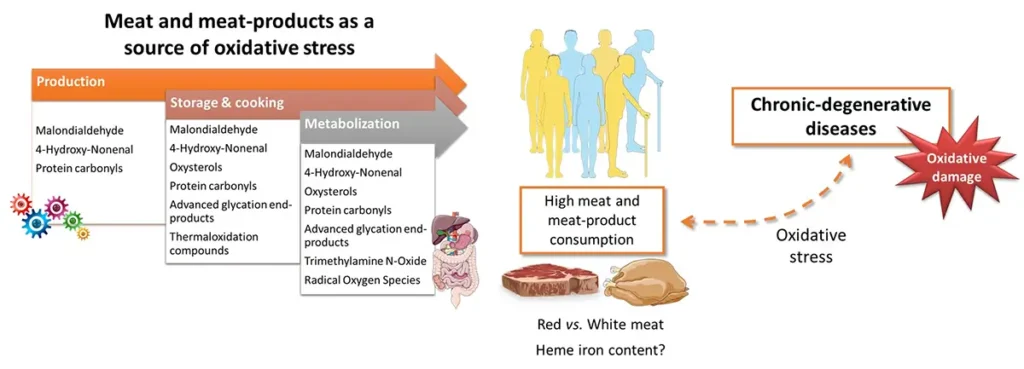
There is a reason why carnivores create their own vitamin C. Actually, most animals synthesize their own vitamin C. A typical 155-pound goat is capable of producing over 13 grams of ascorbate acid (vitamin C) daily. Goats have an average of 155 pounds and live in nature and they eat greens all day. When they are under stress goats were able to dramatically increase ascorbic acid production (vitamin C) by as much as 13 times normal levels than when unstressed (Stone, 1979). When facing significant health stresses, as a biological defense mechanism ascorbic acid would be created in massive amounts. This could explain why wild animals tend to remain vibrantly healthy until they succumb to old age (Marshall et al., 2011). As a comparison, the recommended dietary allowance for humans of vitamin C proposed and used by nutritionists is 90 milligrams. And that is because we have depended on other types of antioxidants from fruit and vegetables as well and because that was in our normal diet. If we compare the average goat to the average human, we can easily see that we are much more exposed to toxins and pollution and much more than in the past.
The lecture is about the role of vitamin C (ascorbic acid) in a variety of functions in the body and that there is research in health care often forgotten, denied, and doubted. Dr. Humphries has a historical perspective on vitamin C and its importance in various diseases but also describes its role in health in general.
Longevity Essentials, Jun 25, 2021,
We should be taking more antioxidants today than in the Paleo period and we don’t take them at all. The standard American diet (SAD) is so sad that the number one antioxidant in it is coffee. If we know this, we can see that we are in serious trouble. Most of the calories come from fat, sugar, refined flour, meat, eggs, and dairy and where are the antioxidants? Nowhere. And where are inflammation and cancer? Everywhere.
Plant food has been so great and large portion of our diet that we didn’t have to evolve such a strong defense mechanism against oxidation but that is exactly what is causing us a serious problem today when we have changed our diet completely. Also today, we are exposed to toxic overload from both food and the environment. On the one hand, we lack antioxidants and on another, we are overexposed to mutagens and toxins. Even misguided keto Paleo diet people are still eating more vegetables and have higher antioxidant intake than people on a standard American diet.
DNA damage
Antioxidants are important because they prevent damage to the DNA and also influence the rate of aging. Aging is just oxidation and people don’t know this. The element that gives us life, oxygen, is also the element that gives us death. It is kind of ironic. Oxygen is an extremely reactive substance. Fire cannot burn without it. It reacts to every molecule it can try to combine with it or steal its electron. Even metals such as iron are not immune to it. Eventually, iron will turn to iron oxide or in other words rust. In normal cellular respiration, metabolic reactions will convert biochemical energy from nutrients into adenosine triphosphate (ATP) with the use of oxygen. In 6 minutes of being deprived of oxygen, our brain dies. Even plants that give off oxygen during photosynthesis when there is no Sun, start to take up oxygen from the air and soil to break down sugars to use for energy, just like humans. Respiration is one of the key ways a cell releases chemical energy to fuel cellular activity.
But there is no such thing as perfection in nature.
Some of that oxygen “escapes” as a free unbound reactive molecule called free radical and then starts to react with all other molecules around it and that leads to cascading of molecular reactions that in the end lead to cellular damage.
Some of the damaged cells naturally end their life cycle and die. In their place come new ones from the division.
The higher the metabolism, the higher the damage, and the higher the division.
This damage to DNA is called aging. Because cells get damaged during regular cellular respiration when DNA splits to repair damaged cells its halves telomeres in half. Every time DNA multiplies it halves the ending of the chromosomes that protect the DNA from misfolding. A telomere is a small area of repeated nucleotide sequences at each end of a chromosome.
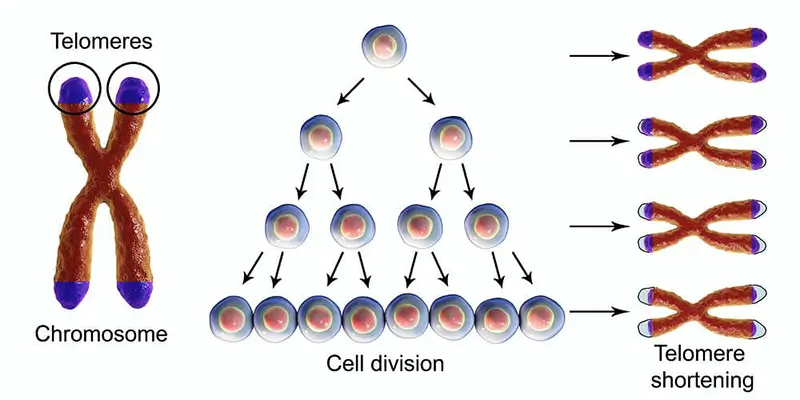
The purpose of the telomere is to keep the end of the chromosome from deterioration or fusion with other neighboring chromosomes. During chromosome duplication, the enzymes that duplicate DNA can maintain their duplication unit at the end of a chromosome. What happens is that in each duplication, the end of the chromosome is shortened. After too many divisions telomeres are gone, and there are no more divisions only death. It is a process called aging.
We can slow this process down and increase our longevity by slowing oxidative damage with high levels of antioxidants in the diet, and we can slow it down by increasing energy efficiency by lowering our metabolic rate. Also, any type of DNA damage will shorten our lifespan not just oxidative. This includes radiation, pollution, toxins, and any type of physical or chemical damage. Oxidative damage cannot be stopped. The problem is that nothing in nature is 100% effective. Some of the oxygen in our cells escapes in the form of free radicals and does oxidation elsewhere.
Eventually, there will be no more splitting and repeating of the DNA just damage and death. And oxygen is to blame besides other toxic substances.
This affects every living organism including plants. The way that plans defend against this is by creating substances that have one or more extra electrons to give to the oxygen to neutralize the damage. These are known as antioxidants. There is a different array of antioxidants that plants can produce and the most common type in the plant kingdom are already mentioned plant pigments. These pigments also protect the plant from UV radiation damage besides oxidation.
Two main antioxidants are also vitamins for us. First is already mentioned vitamin C that is soluble in water and neutralizes free radicals in water solutions in the body. This is the main difference between the two of them. The second one is vitamin E which is oil soluble (oil and water don’t mix) and it goes to the parts that are made out of fat where water-soluble vitamin C cannot and then neutralizes free radicals there. For example, the brain is a “high fat” organ and serious vitamin E deficiency manifests as neuropathy and myopathy, as vitamin E is essential for the development and maintenance of the central nervous system. Vitamin E could prevent lipid oxidation everywhere in the body and without adequate levels of intake health issues will accrue. Beta carotene is also a fat-soluble pigment.
Antioxidant metabolism
When antioxidants give away its electron, they become pro-radicals themselves. It is important to understand this. There are no, or let’s say in this manner, very rare types of antioxidants that “just” give electrons and don’t turn themselves into free radicals. There are some that I will discuss in correlated articles. When some substance has a weak bond to its electron and some more reactive substances like free radicals or toxins have a stronger force it will pull that electron away. But still, even that antioxidant that became a weak free radical wants its electron back. The force or reactivity of that newly formed free radical is much less reactive but still, it wants its electron back.
Every time we have consumed antioxidants they will turn into pro radicals in the body.
The way our bodies evolved to cope with this is to have different enzymes to neutralize these new substances. The logic behind it is like this: the strongest poison is neutralized, then the weaker one, then at the end the weakest one is removed from the body or neutralized. It is a chemical cascading reaction that lasts for some time until the body removes the toxins or free radicals. If we consumed adequate amounts of antioxidants, they will neutralize the strongest free radicals and then the weaker ones, and then down the line, the damage will be minimized. But it takes the enzymatic pathways in the body to do this.
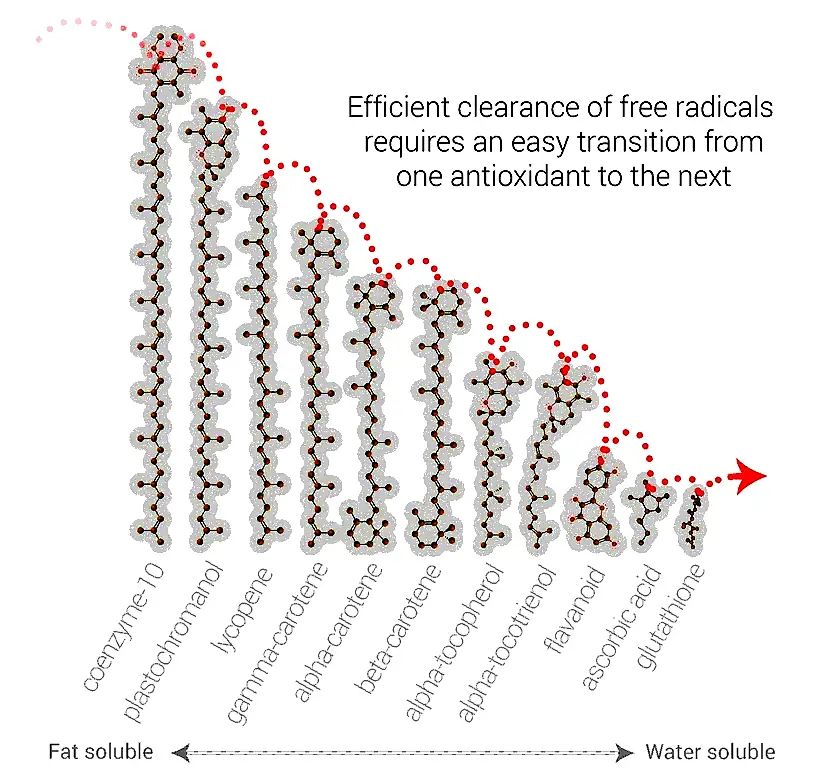
If you just take vitamin E or beta carotene in the extracted form as a supplement you will do yourself more damage than good. This is a reason why some extracted antioxidant pills don’t work. You can take as much vitamin E as you want but that will not neutralize all of the free radicals because there are not enough other enzymes down the line to take advantage of that unnatural and excessive levels of vitamin E. Most of that vitamin E the body will not be able to remove or utilize properly and that will do damage just by itself. Only whole unprocessed plant food that is naturally full of antioxidants in experimental research showed benefit. In some cases, supplemental antioxidants increased the risk of mortality. They were worse than just doing nothing and people who take them pay to live shorter lives. In this meta-analysis (Bjelakovic et al., 2007) researchers included 68 randomized trials with 232,606 participants (385 publications). The conclusion was that antioxidant supplements significantly increased mortality. Beta carotene, vitamin A, and vitamin E individually or combined, significantly increased mortality but vitamin C and selenium had no significant effect on mortality.
But again, we have to be objective here. In most of the trials, they used synthetic vitamin E and beta carotene. There is a molecular difference between naturally occurring vitamin E and the molecule that supplement companies create.
Suplemental vitamin E
Industry cannot produce vitamin E with the same molecular structure in laboratories because it would be too expensive. They are marketing supplements that aren’t vitamin E as vitamin E.
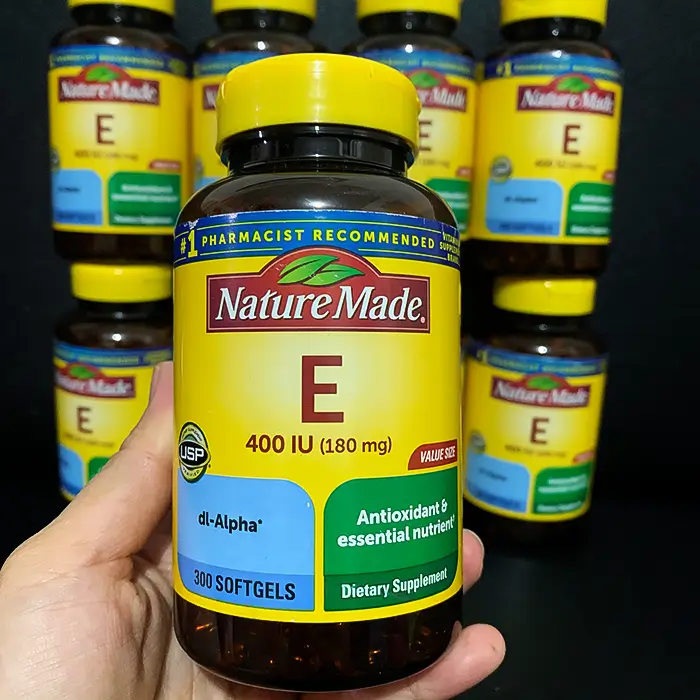
Natural α-tocopherol made by plants found in food has an RRR-configuration at the 2, 4’, and 8’-position of the α-tocopherol molecule (wrongly referred to as d-α-tocopherol). Chemically synthesized all-rac-α-tocopherol (all-racemic-α-tocopherol; incorrectly labeled dl-α-tocopherol) is a mixture of eight stereoisomers of α-tocopherol, which arose from the three chiral carbons at the 2, 4’, and 8’-positions: RRR-, RSR-, RRS-, RSS-, SRR-, SSR-, SRS-, and SSS-α-tocopherol. While all stereoisomers have equal in vitro antioxidant activity, only the forms in the R-conformation at position 2 (noted 2R) meet the vitamin E requirements in humans.
This is nothing new. Everyone in nutrition and medicine knows that synthetic vitamin E does not have any antioxidant activity in vivo. It is a fake vitamin pill that is used for fortifying baby food.
In chemical terms, natural vitamin E is d alpha-tocopherol while synthetic is dl alpha-tocopheryl. When looking for a natural form of vitamin E, always select one that is “d” (not “dl”), and the word tocopherol ends with “ol” (not “yl”).
In whole food, there are also other types of tocopherols besides alpha which is considered to be a vitamin. There are beta and gamma tocopherols and they have their specific physiological benefits. Excessive amounts of natural vitamin E might, and I say here might not be as bad as an excessive amount of synthetic vitamin E.
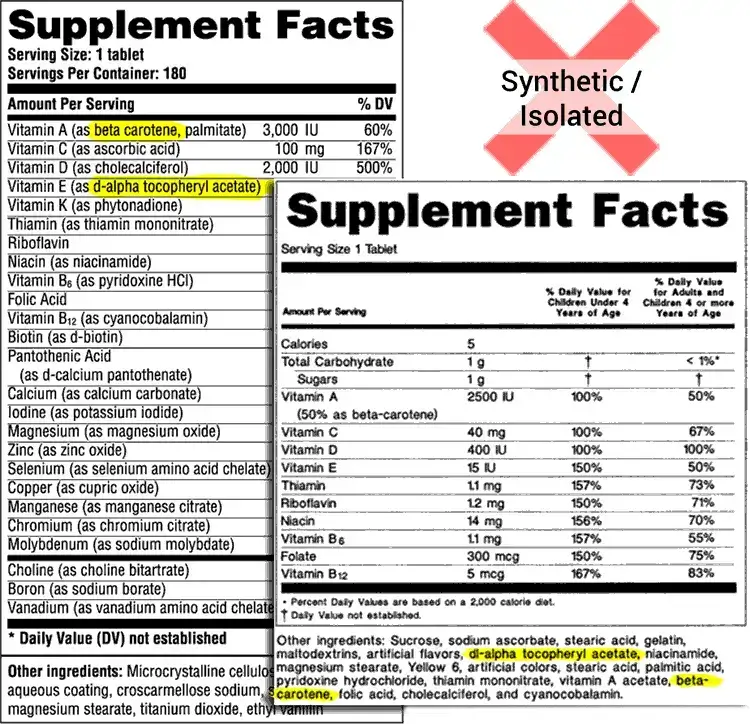
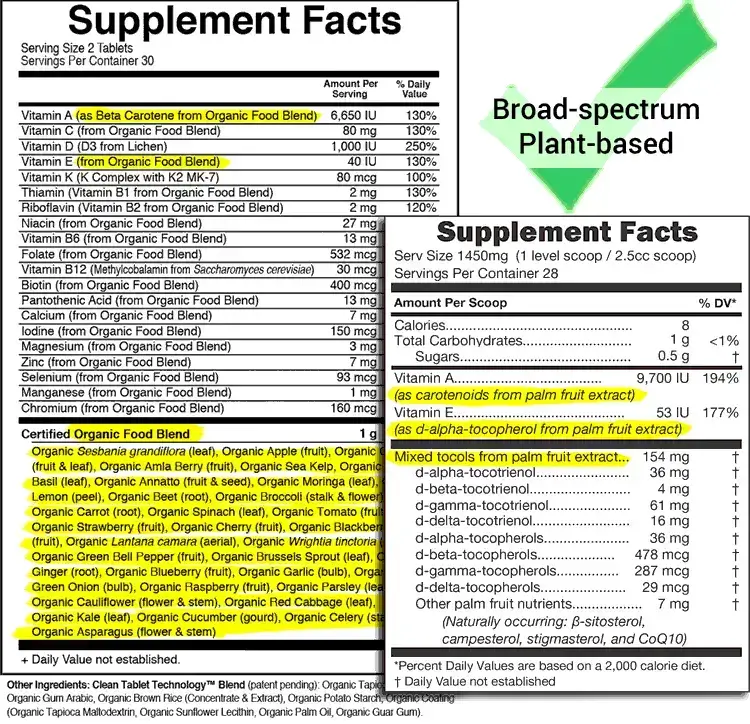
Where the real benefit of supplemental vitamin E exists where you don’t have an adequate intake of vitamin E from food. Usually, people who have a standard American diet are vitamin E deficient because vitamin E is found in oils of nuts and seeds in a whole food package. If you extract oil that oil will come into contact with oxygen and then that vitamin E will oxidase or in other words, the oil will become rancid. When you crack open a nut or a seed and eat it immediately you will have the full benefit of natural vitamin E. If you want to supplement and don’t eat enough plant-based oily whole foods then look for a supplement that has a naturally extracted mix of different types of tocopherols including both alpha, beta, gamma, and delta types.
Some seeds have only one type for example 100 grams of flaxseed have 20.0mg of gamma-tocopherol but only 0.3mg of alpha-tocopherol. If you don’t know this you might think that it does not have any vitamin E because it would not be listed that it has on the label. Only the alpha type is listed and recognized as a vitamin but that is not a complete picture. Most of the phytochemicals that are not recognized as vitamins will not be listed on any label. Current scientific data suggest that supplementing with a natural mix of tocopherols has benefits if you have vitamin E deficiency and supplementing more than that will have no additional benefit at all and can create problems (Dotan et al., 2009). The same story is with beta carotene.
There was a line of studies that found a link between lung cancer, particularly in smokers, and cardiovascular disease and supplemental beta-carotene. Why this happens they don’t know. So far there is only speculation because that link doesn’t exist if beta carotene is eaten in a whole food package. The reasoning is that there might be a range of other phytochemicals in whole food that synergistically work with beta carotene. Individuals who smoke should not take beta-carotene supplements or for that matter, anyone should. Beta carotene deposits itself in fat within the body and in time it can color the skin. Eating too many carrots can turn your skin orange. In extreme cases, people will have an orange nose or palms.
It’s a medical condition known as carotenemia and the condition is generally harmless. But because of the sex appeal, people are taking supplemental beta carotene since it is more convenient than juicing carrots every day. There was a line of experiments that found that people who have a small amount or let’s say an initial stage of carotenemia have a more appealing face to the opposite sex. It is a nice “golden glow“ of healthy young skin. This might have been an evolutionary subconscious response to signal the healthy individual with a healthy diet to the opposite sex. That means more chance of a successful pregnancy. It might be a health indicator and this incentive is something that some people are utilizing as a form of supplement to give themselves a nice healthy look. If you want to take supplemental beta carotene then always take the natural form of it and a better option will be to just eat carrots or at least remove the fiber and drink carrot juice. On average, a healthy dosage of beta-carotene is six to eight milligrams a day. According to a Columbia University health blog, “for carotenemia to set in, you might have to consume as much as 20 milligrams per day (or, three large carrots).” Same as vitamin E, in natural whole food there are also alpha, beta, and gamma carotenes as well as a whole range of other pigments. So again, always go for a whole food source of phytochemicals, if you can. Researchers at Cleveland Clinic conducted a meta-analysis, combining the results of eight studies on the effects of beta-carotene at doses ranging from 15 to 50 milligrams. After investigating data from over 130,000 patients, researchers found that supplementation of beta carotene (most of that supplements to be truthful was a synthetic form of carotene) led to a small increase in cardiovascular death (Vivekananthan et al., 2003).
Oil-soluble antioxidants like vitamin E and beta carotene are important for the prevention of heart disease because oxidized LDL is thought to play an important part in the pathogenesis of atherosclerosis. Observational studies have associated alpha-tocopherol (vitamin E), beta carotene, and other oil-soluble pigments and antioxidants with reductions in cardiovascular events but again this is from food sources of these antioxidants. When researched in the supplemental form it was a different story. Because beta carotene is an oil-soluble substance, the absorption will be increased if you add some nuts or seeds to your carrots but if you want a supplemental form of beta carotene then chose a naturally sourced supplement and don’t overdo with the amounts.
There are much better supplemental antioxidants that don’t have any negative effects and are tens and hundreds of times more potent than beta-carotene or supplemental vitamin E. But again, vitamin E is a vitamin and has a vital role in body functioning and you need to take an adequate amount of it in food or if you don’t have enough from your diet then take a supplement. There is also a misconception that because retinol or animal-sourced vitamin A is the “real“ vitamin A that somehow our body will not absorb and utilize enough beta carotene in the vegan diet to make vitamin A so vegans need to supplement with vitamin A. This is not correct. It is just one more myth. It can be true if you are what I like to call junk vegan that eats French fries and drinks Coca-Cola, but if you eat a normal whole-food vegan diet it is not the case. If you want to supplement some potent supplemental antioxidants don’t have any negative side effects.
Because we as a species have lost our ability to produce vitamin C we depend on external sources. There are also other internal antioxidants that our body can produce the most well-known would be glutathione. But still, we have to remember one simple fact. We as vegan primates that for most of our evolution had consumed nothing more than green leaves and fruits no matter what allopathic medicine is pushing as a narrative still dependent on an optimal intake of dietary antioxidants. Will increasing antioxidant content prolong our life? It will but it will not make us immortal. It will give us more protection from modern diseases of affluence and increase our health and as a side effect might give us some more years in the end. But the main goal is disease prevention.
Rate of aging
There are scientific studies nonetheless regarding our longevity. In recent years science has been shifting toward the idea that aging is nothing more than the disease itself. And there is some truth to it.
If we look into the animal kingdom the higher the metabolism of the species or in other words the more energy the cells need to use in the unit of time to exist, the faster the damage. Tiny animals with rapid metabolic rates will have shorter lifespans than, for example, giant tortoises with extremely slow metabolic rates, which have a lifespan of 80 to 150 years on average.
Have you ever asked yourself how many heartbeats a common man has in their life? It turns out each animal gets around a billion beats. The higher the metabolic rate is the more oxygen is used and more circulation of the blood and intensity of breading is required.
Smaller animals have higher metabolic rates, and their heart is beating faster. If we calculate the number of beats for different sizes of different species of animals the magic number is one billion. Cats, rabbits, whales, pigs, elephants, it does not matter, it is always one billion. In contrast, humans and beards, in general, are some of the species that we got the better deal. We have more than double the usual natural number for other species. Around 2.21 billion for us.
It is called the rate of living theory. The idea was initially put out by Max Rubner in 1908. He noted that larger animals always outlived smaller ones and that the larger animals had slower metabolisms. These results were further supported when Max Kleiber’s law was discovered in 1932. Kleiber assumed that basal metabolic rate could correctly be predicted by taking 3/4 the power of body weight.
This theory is colloquially known as the mouse-to-elephant curve. Support for this theory has been reinforced by studies linking a lower basal metabolic rate (evident with a lowered heartbeat) to increased life expectancy.
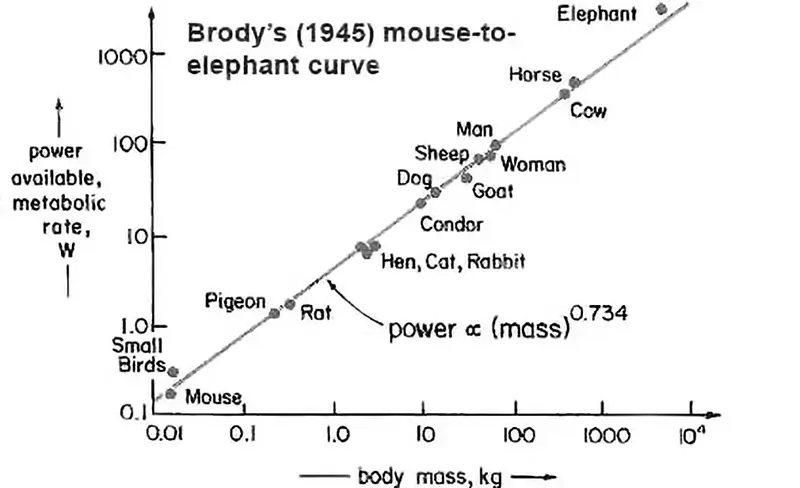
In recent years scientists have begun research in the field of longevity regarding birds. In general, birds live around two to three times as long as mammals. It’s noteworthy to note that avian cells may use up to 2.5 times as much oxygen per unit of time as mammal cells do. We have an unresolved scientific phenomenon if we combine the fact that birds have high metabolic rates and oxygen use with their extended lifespans. Birds have developed certain defenses against the harm caused by free radicals. Specifics of such preventative measures continue to be a mystery. The study of longevity is a hot topic in the modern science of today with a great outlook for the future.
It will be significant, especially in pharmaceutics, it already is. Big money and the future of drug discovery are in there. The pharmaceutical business today conducts studies on a variety of chemicals, one of which being for example Compound SRT1720. Universal calorie restriction pill, all we can eat and still have the benefits. SRT1720 mimics dietary restriction and mitigates many of the negative consequences of obesity and a high-fat diet with no toxicity.
In the future, we might be able to have some similar pill but until that time come what we can do is a dietary intervention. We need to optimize our antioxidant intake no matter how much allopathic medicine enforces the belief that antioxidants are of no importance. At the same time while they do scientific research into longevity for pattering purposes.
Astaxanthin, MegaHydrate, or just plain Curcumin
If we want to supplement what we can have at present time is something in the form of strong universal antioxidants like Astaxanthin, MegaHydrate, or just plain Curcumin.
Currently, MegaHydrate is the most potent dietary antioxidant known to science. It is an artificial synthetic antioxidant that also in the same time acts as a viscosity agent. It forces water molecules to arrange themselves into the geometrical structure while in liquid form creating liquid crystal from regular water decreasing its viscosity and surface tension. Liquid crystal is the fourth state of water. At the same time, it has pure ionized hydrogen as a free electron antioxidant supplier. People always ask me what I think about it because of all of the new-age beliefs of its inventor and I don’t know. Some research on it is solid but still, it needs more research to be done and it seems that so far the science behind it is solid. This might help people with cardiovascular disease as well because it will lower the viscosity of the blood. This might be a good thing and a bad thing if you overdo it and end up in an accident you will bleed to death. Also if you overdo it you can be at risk of cardiac pathophysiology. The combination of tissue hypoxia and reduced blood viscosity leads to decreased systemic vascular resistance. The body responds to decreased systemic vascular resistance by increasing sodium and water retention resulting in an increased stroke volume and cardiac output. Also, this substance is 100 percent synthetic and might disrupt processes in the body. This is why it needs more research.
Patrick Flanagan shares how he discovered Crystal Energy, Microhydrin & MegaHydrate. From his early teens, his research led him to find the secrets of Hunza water and how ionized hydrogen and a colloidal mineral with anomalous properties can be very beneficial to the regeneration of your body.
The most potent natural antioxidant known to science is Astaxanthin. The benefit of this substance is that it would not turn itself into pro-radical. It will give its electrons and leave the body. Secondly, it has a very unique property as an antioxidant to be both water-soluble and fat-soluble. It is a universal antioxidant. It is produced by microscopic algae as a defense from UV radiation. The reason shrimps, salmon, od pink flamingos are red is that they consume astaxanthin. It is well research substance with a wide range of health benefits. I take it myself and I recommend this to everyone as an additional supplement because it will not disrupt any internal enzymatic process this is very important and as a fat-soluble antioxidant it will remain in cell membranes for extended periods offering lasting and universal antioxidant protection on top of other dietary antioxidants.
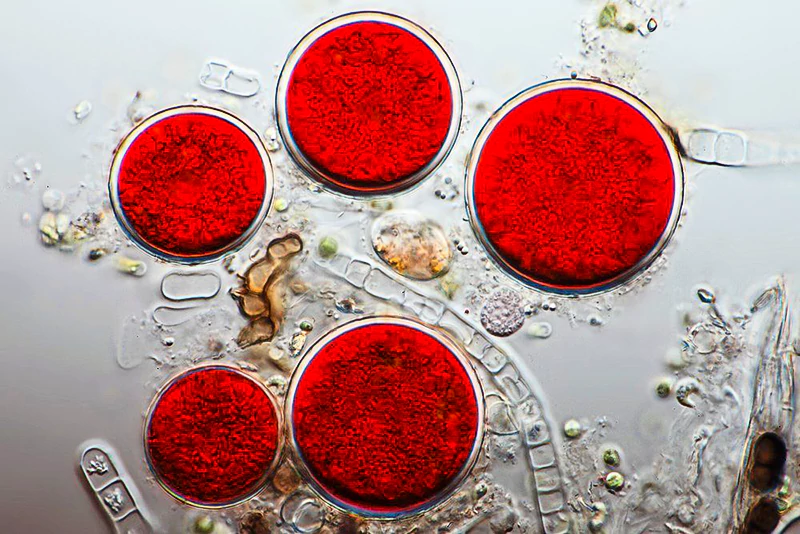
In addition to being a normal occurrence in healthy human cells, oxidative stress is also essential for the proper operation of some key metabolic processes including insulin signaling and erythropoiesis. In light of current physiological research, it appears more beneficial to preserve the delicate redox balance of the cell than to interfere with the antioxidant homeostasis by a non-physiological, excessive exogenous supply of antioxidants if there is a risk that these external antioxidants could disrupt some of these processes. That is why we rely predominantly on food and natural substances first and on very well research supplemental synthetic molecules.
The most potent and most consumed dietary antioxidant is curcumin. If you don’t have money from astaxanthins then just add this to your diet. It is dirt cheap.
It is a yellow pigment a polyphenol found in turmeric. Turmeric has long been known for its therapeutic benefits in traditional medicine. It helps with the treatment of metabolic syndrome, arthritis, anxiety, and hyperlipidemia as well as oxidative and inflammatory diseases. It aids in the control of inflammation of any type including muscular soreness brought on by exercise, which would improve recovery and performance in athletes. However, even those without known medical issues where chronic inflammation plays a role will benefit from a relatively low dose of curcumin as a longevity and health prevention antioxidant supplement. Due to curcumin’s limited bioavailability, taking turmeric by itself does not have the related health benefits and turmeric is a good source of oxalic acid so overdosing is not an option. There are several substances that are able to improve bioavailability. For instance, piperine, the primary active ingredient in black pepper, has been demonstrated to improve bioavailability by 2000% when coupled with curcumin in a complex. I take every day one teaspoon with a gram of ground pepper.
How much antioxidants?
Do we need to supplement and do or how much is optimal if we consume a whole food diet?
Units that measure the antioxidant capacity of different substances are called ORAC. ORAC stands for Oxygen Radical Absorbance Capacity.
In 2007, the USDA published the first database of ORAC values, which included 277 food products. Then in 2010, the study was published, which took 8 years to complete and covered the antioxidant value of 3149 food products (Carlsen et al., 2010).
As of today, the USDA website’s whole database of ORAC values has been taken down. They did it because of political pressure. The industry started to worry because of a rise in awareness from people. Not all fruits are made equal. The same applies to vegetables. The industry started to notice that this database influence consumer decisions and they did not like that. The policy was reversed.
Today there is no “official” daily recommended consumption of ORAC units. Many doctors would not even propose an antioxidant-rich diet, and several researchers have suggested that the ideal intake is only 3000-5000 ORAC units per day. Even the USDA itself has recommended consuming only 5000 ORAC units each day. The UK FSA and the FDA suggest “5 a day” of fruit and vegetable servings, which yields an estimated ORAC score of 3500. I would suggest that we need at least 15000 to more than 25000 if you are a smoker or have any pollution exposure. At the lowest value. And the more the better if you count only whole food as a source. I have compiled the entire list directly from the research paper and with some additional sources. You can find and download it here (orac-values).
But today in allopathic medicine it’s all just a joke and even worse, deliberate conspiracy. This is because the number one antioxidant in the standard American diet is coffee. Accepting ORAC recommendations will automatically mean the same thing that the McGovern report suggested. Changing dietary recommendations or in other word food pyramid. If you need more antioxidants that means you will have to consume more whole-food plant-based products and this would mean consuming fewer processed foods and meat and dairy that do not have any. And that is not something that anybody wants. There is not much profit to be made in carrots and kale. There are much less satisfying than pizza and ice cream. Allopathic medicine and big pharma do not like when people take curcumin instead of chemotherapy and you can believe this or not, curcumin is a leading chemotherapy drug that has in some cases higher anticancer effects than patented medicine. This is proven by research. To this day it is not talked about or used in any oncologist’s office.
Conclusion
- Phytochemicals (all the chemicals that plants produce) are essential for life.
- We depend on antioxidant phytochemicals, two of them are vitamins for us, vitamin C and vitamin E.
- Besides vitamins, next in the line of the most important phytochemicals for us are natural pigments. These pigments are created by the plants as a defensive mechanism from free oxygen damage (antioxidants) or as a defense from UV radiation.
- Oxidative stress happens when an oxygen molecule splits into single atoms with unpaired electrons. These aggressive molecules are called free radicals. They are so aggressive that they will attack the nearest stable molecule trying to steal its electron particle.
- There are no phytochemicals and adequate amounts of antioxidants in animal products.
- Antioxidants are important because they prevent damage to the DNA and also influence the rate of aging.
- In recent years science has been shifting toward the idea that aging is nothing more than the disease itself. If we look into the animal kingdom the higher the metabolism of the species or in other words the more energy the cells need to use in the unit of time to exist, the faster the damage. It is called the rate of living theory.
- When antioxidants give away its electron, they become pro-radicals themselves. The way our bodies evolved to cope with this is to have different enzymes to neutralize these new substances.
- Never take supplemental antioxidants that will turn into pro-oxidant inside the body
- Never take supplemental antioxidants that need enzymatic pathways to be removed from the body, they might overrun the body’s natural defense mechanism, do your research before taking them
- Never take supplemental vitamin E, selenium, beta carotene, and lycopene- showed an increased risk of cancer in supplemental form
- Always take whole food sources of antioxidants before supplemental extracted forms because of the phytochemical synergies
- There is no wonder cure or substitute for a bad diet, there are only more potent supplemental antioxidant food sources like amla, turmeric, cacao, hibiscus, astaxanthin, or berries…
- Currently, MegaHydrate is the most potent dietary antioxidant known to science.
- The most potent natural antioxidant known to science is Astaxanthin.
- The most potent and most consumed dietary antioxidant is curcumin.
- Units that measure the antioxidant capacity of different substances are called ORAC. ORAC stands for Oxygen Radical Absorbance Capacity.
- Today there is no “official” daily recommended consumption of ORAC units.
FAQ
References:
References:
Passages selected from a book: Pokimica, Milos. Go Vegan? Review of Science Part 3. Kindle ed., Amazon, 2020.
- Bjelakovic, G., Nikolova, D., Gluud, L. L., Simonetti, R. G., & Gluud, C. (2007). Mortality in randomized trials of antioxidant supplements for primary and secondary prevention: systematic review and meta-analysis. JAMA, 297(8), 842–857. https://doi.org/10.1001/jama.297.8.842
- Dotan, Y., Lichtenberg, D., & Pinchuk, I. (2009). No evidence supports vitamin E indiscriminate supplementation. BioFactors (Oxford, England), 35(6), 469–473. https://doi.org/10.1002/biof.61
- Vivekananthan, D. P., Penn, M. S., Sapp, S. K., Hsu, A., & Topol, E. J. (2003). Use of antioxidant vitamins for the prevention of cardiovascular disease: meta-analysis of randomised trials. Lancet (London, England), 361(9374), 2017–2023. https://doi.org/10.1016/S0140-6736(03)13637-9
- Carlsen, M. H., Halvorsen, B. L., Holte, K., Bøhn, S. K., Dragland, S., Sampson, L., Willey, C., Senoo, H., Umezono, Y., Sanada, C., Barikmo, I., Berhe, N., Willett, W. C., Phillips, K. M., Jacobs, D. R., Jr, & Blomhoff, R. (2010). The total antioxidant content of more than 3100 foods, beverages, spices, herbs and supplements used worldwide. Nutrition journal, 9, 3. https://doi.org/10.1186/1475-2891-9-3
- Benzie, I. F., & Wachtel-Galor, S. (2010). Vegetarian diets and public health: biomarker and redox connections. Antioxidants & redox signaling, 13(10), 1575–1591. https://doi.org/10.1089/ars.2009.3024
- Macho-González, A., Garcimartín, A., López-Oliva, M. E., Bastida, S., Benedí, J., Ros, G., Nieto, G., & Sánchez-Muniz, F. J. (2020). Can Meat and Meat-Products Induce Oxidative Stress? Antioxidants, 9(7), 638. https://doi.org/10.3390/antiox9070638
- Dietrich, M., Jacques, P., Pencina, M., Lanier, K., Keyes, M., Kaur, G., Wolf, P., & Vasan, R. (2009). Vitamin E Supplement Use and the Incidence of Cardiovascular Disease and All-Cause Mortality in the Framingham Heart Study: Does the Underlying Health Status Play a Role? Atherosclerosis, 205(2), 549. https://doi.org/10.1016/j.atherosclerosis.2008.12.019
- Bjelakovic, G., Nikolova, D., & Gluud, C. (2013). Meta-Regression Analyses, Meta-Analyses, and Trial Sequential Analyses of the Effects of Supplementation with Beta-Carotene, Vitamin A, and Vitamin E Singly or in Different Combinations on All-Cause Mortality: Do We Have Evidence for Lack of Harm? PLoS ONE, 8(9). https://doi.org/10.1371/journal.pone.0074558
- Institute of Medicine (US) Panel on Dietary Antioxidants and Related Compounds. (2000). Dietary Reference Intakes for Vitamin C, Vitamin E, Selenium, and Carotenoids. National Academies Press (US). [PubMed]
- Present Knowledge in Nutrition, 10th Edition. (2012, June 19). Wiley.com. https://www.wiley.com/en-us/Present+Knowledge+in+Nutrition,+10th+Edition-p-9781119946045
- Jiang Q. (2014). Natural forms of vitamin E: metabolism, antioxidant, and anti-inflammatory activities and their role in disease prevention and therapy. Free radical biology & medicine, 72, 76–90. https://doi.org/10.1016/j.freeradbiomed.2014.03.035
- Stone, I. (1979). Homo sapiens ascorbicus, a biochemically corrected robust human mutant. Medical Hypotheses, 5(6), 711-721. https://doi.org/10.1016/0306-9877(79)90093-8
- Marshall, B., & Levy, S. B. (2011). Food Animals and Antimicrobials: Impacts on Human Health. Clinical Microbiology Reviews, 24(4), 718–733. https://doi.org/10.1128/cmr.00002-11
Related Posts
Do you have any questions about nutrition and health?
I would love to hear from you and answer them in my next post. I appreciate your input and opinion and I look forward to hearing from you soon. I also invite you to follow us on Facebook, Instagram, and Pinterest for more diet, nutrition, and health content. You can leave a comment there and connect with other health enthusiasts, share your tips and experiences, and get support and encouragement from our team and community.
I hope that this post was informative and enjoyable for you and that you are prepared to apply the insights you learned. If you found this post helpful, please share it with your friends and family who might also benefit from it. You never know who might need some guidance and support on their health journey.
– You Might Also Like –

Learn About Nutrition
Milos Pokimica is a doctor of natural medicine, clinical nutritionist, medical health and nutrition writer, and nutritional science advisor. Author of the book series Go Vegan? Review of Science, he also operates the natural health website GoVeganWay.com
Medical Disclaimer
GoVeganWay.com brings you reviews of the latest nutrition and health-related research. The information provided represents the personal opinion of the author and is not intended nor implied to be a substitute for professional medical advice, diagnosis, or treatment. The information provided is for informational purposes only and is not intended to serve as a substitute for the consultation, diagnosis, and/or medical treatment of a qualified physician or healthcare provider.NEVER DISREGARD PROFESSIONAL MEDICAL ADVICE OR DELAY SEEKING MEDICAL TREATMENT BECAUSE OF SOMETHING YOU HAVE READ ON OR ACCESSED THROUGH GoVeganWay.com
NEVER APPLY ANY LIFESTYLE CHANGES OR ANY CHANGES AT ALL AS A CONSEQUENCE OF SOMETHING YOU HAVE READ IN GoVeganWay.com BEFORE CONSULTING LICENCED MEDICAL PRACTITIONER.
In the event of a medical emergency, call a doctor or 911 immediately. GoVeganWay.com does not recommend or endorse any specific groups, organizations, tests, physicians, products, procedures, opinions, or other information that may be mentioned inside.
Editor Picks –
Milos Pokimica is a health and nutrition writer and nutritional science advisor. Author of the book series Go Vegan? Review of Science, he also operates the natural health website GoVeganWay.com
Latest Articles –
Top Health News — ScienceDaily
- The overlooked nutrition risk of Ozempic and Wegovyon February 4, 2026
Popular weight-loss drugs like Ozempic and Wegovy can dramatically curb appetite, but experts warn many users are flying blind when it comes to nutrition. New research suggests people taking these medications may not be getting enough guidance on protein, vitamins, and overall diet quality, increasing the risk of muscle loss and nutrient deficiencies.
- A 25-year study found an unexpected link between cheese and dementiaon February 4, 2026
A massive Swedish study tracking nearly 28,000 people for 25 years found an unexpected link between full-fat dairy and brain health. Among adults without a genetic risk for Alzheimer’s, eating more full-fat cheese was associated with a noticeably lower risk of developing the disease, while higher cream intake was tied to reduced dementia risk overall. The findings challenge decades of low-fat dietary advice but come with important caveats.
- MIT’s new brain tool could finally explain consciousnesson February 4, 2026
Scientists still don’t know how the brain turns physical activity into thoughts, feelings, and awareness—but a powerful new tool may help crack the mystery. Researchers at MIT are exploring transcranial focused ultrasound, a noninvasive technology that can precisely stimulate deep regions of the brain that were previously off-limits. In a new “roadmap” paper, they explain how this method could finally let scientists test cause-and-effect in consciousness research, not just observe […]
- Why heart disease risk in type 2 diabetes looks different for men and womenon February 4, 2026
Scientists are digging into why heart disease risk in type 2 diabetes differs between men and women—and sex hormones may be part of the story. In a large Johns Hopkins study, men with higher testosterone had lower heart disease risk, while rising estradiol levels were linked to higher risk. These hormone effects were not seen in women. The results point toward more personalized approaches to heart disease prevention in diabetes.
- Sound machines might be making your sleep worseon February 4, 2026
Sound machines may not be the sleep saviors many believe. Researchers found that pink noise significantly reduced REM sleep, while simple earplugs did a better job protecting deep, restorative sleep from traffic noise. When pink noise was combined with outside noise, sleep quality dropped even further. The results suggest that popular “sleep sounds” could be doing more harm than good—particularly for kids.
- This unexpected plant discovery could change how drugs are madeon February 3, 2026
Plants make chemical weapons to protect themselves, and many of these compounds have become vital to human medicine. Researchers found that one powerful plant chemical is produced using a gene that looks surprisingly bacterial. This suggests plants reuse microbial tools to invent new chemistry. The insight could help scientists discover new drugs and produce them more sustainably.
- A hidden cellular process may drive aging and diseaseon February 3, 2026
As we age, our cells don’t just wear down—they reorganize. Researchers found that cells actively remodel a key structure called the endoplasmic reticulum, reducing protein-producing regions while preserving fat-related ones. This process, driven by ER-phagy, is tied to lifespan and healthy aging. Because these changes happen early, they could help trigger later disease—or offer a chance to stop it.
PubMed, #vegan-diet –
- Diet type and the oral microbiomeon February 2, 2026
CONCLUSION: The diet-oral microbiome-systemic inflammation axis is bidirectional and clinically relevant. Understanding both direct ecological regulation and indirect metabolic effects is essential to support precision nutrition strategies aimed at maintaining oral microbial balance and systemic inflammatory risk mitigation.
- Consensus document on healthy lifestyleson January 22, 2026
Proteins are a group of macronutrients that are vital to our lives, as they perform various functions, including structural, defensive and catalytic. An intake of 1.0-1.2 g/kg/body weight per day would be sufficient to meet our needs. Carbohydrate requirements constitute 50 % of the total caloric value and should be obtained mainly in the form of complex carbohydrates. In addition, a daily intake of both soluble and insoluble fiber is necessary. Regular consumption of extra virgin olive oil […]
- Vitamin B12 and D status in long-term vegetarians: Impact of diet duration and subtypes in Beijing, Chinaon January 21, 2026
CONCLUSIONS: This study reveals a dual challenge among Beijing long-term vegetarians: vitamin B12 deficiency was strongly associated with the degree of exclusion of animal products from the diet (veganism), while vitamin D deficiency was highly prevalent and worsened with longer diet duration. The near-universal vitamin D deficiency observed in this study suggests that, in the Beijing context, the risk may extend beyond dietary choice, potentially reflecting regional environmental factors;…
- Nutritional evaluation of duty meals provided to riot police forces in Germanyon January 13, 2026
Background: The primary role of the German riot police is maintaining internal security. Due to challenging working conditions, riot police forces face an elevated risk of various diseases. During duty, forces are provided with meals. A balanced diet can reduce the risk of some of these diseases and contribute to health-promoting working conditions. Aim: First evaluation of the nutritional quality of duty meals in Germany based on German Nutrition Society recommendations (DGE). Methods: In…
- Iodineon January 1, 2006
Iodine is an essential trace nutrient for all infants that is a normal component of breastmilk. Infant requirements are estimated to be 15 mcg/kg daily in full-term infants and 30 mcg/kg daily in preterm infants.[1] Breastmilk iodine concentration correlates well with maternal urinary iodine concentration and may be a useful index of iodine sufficiency in infants under 2 years of age, but there is no clear agreement on a value that indicates iodine sufficiency, and may not correlate with […]
Random Posts –
Featured Posts –
Latest from PubMed, #plant-based diet –
- From paddy soil to dining table: biological biofortification of rice with zincby Lei Huang on February 4, 2026
One-third of paddy soils are globally deficient in zinc (Zn) and 40% of Zn loss in the procession from brown rice to polished rice, which results in the global issue of hidden hunger, e.g., the micronutrient deficiencies in the rice-based population of developing countries. In the recent decades, biofortification of cereal food crops with Zn has emerged as a promising solution. Herein, we comprehensively reviewed the entire process of Zn in paddy soil to human diet, including the regulatory…
- Molecular Characterization of Tobacco Necrosis Virus A Variants Identified in Sugarbeet Rootsby Alyssa Flobinus on February 3, 2026
Sugarbeet provides an important source of sucrose; a stable, environmentally safe, and low-cost staple in the human diet. Viral diseases arising in sugarbeet ultimately impact sugar content, which translates to financial losses for growers. To manage diseases and prevent such losses from occurring, it is essential to characterize viruses responsible for disease. Recently, our laboratory identified a tobacco necrosis virus A variant named Beta vulgaris alphanecrovirus 1 (BvANV-1) in sugarbeet…
- Nutrition in early life interacts with genetic risk to influence preadult behaviour in the Raine Studyby Lars Meinertz Byg on February 3, 2026
CONCLUSIONS: Nutrition in early life and psychiatric genetic risk may interact to determine lasting child behaviour. Contrary to our hypothesis, we find dietary benefits in individuals with lower ADHD PGS, necessitating replication. We also highlight the possibility of including genetics in early nutrition intervention trials for causal inference.
- Effect of the gut microbiota on insect reproduction: mechanisms and biotechnological prospectsby Dilawar Abbas on February 2, 2026
The insect gut microbiota functions as a multifunctional symbiotic system that plays a central role in host reproduction. Through the production of bioactive metabolites, gut microbes interact with host hormonal pathways, immune signaling, and molecular regulatory networks, thereby shaping reproductive physiology and fitness. This review summarizes recent advances in understanding how gut microbiota regulate insect reproduction. Accumulating evidence demonstrates that microbial metabolites…
- Rationale and design of a parallel randomised trial of a plant-based intensive lifestyle intervention for diabetes remission: The REmission of diabetes using a PlAnt-based weight loss InteRvention…by Brighid McKay on February 2, 2026
CONCLUSIONS: This trial will provide high-quality clinical evidence on the use of plant-based ILIs to address the epidemics of obesity and diabetes to inform public health policies and programs in Canada and beyond.
- Diet type and the oral microbiomeby Daniel Betancur on February 2, 2026
CONCLUSION: The diet-oral microbiome-systemic inflammation axis is bidirectional and clinically relevant. Understanding both direct ecological regulation and indirect metabolic effects is essential to support precision nutrition strategies aimed at maintaining oral microbial balance and systemic inflammatory risk mitigation.
